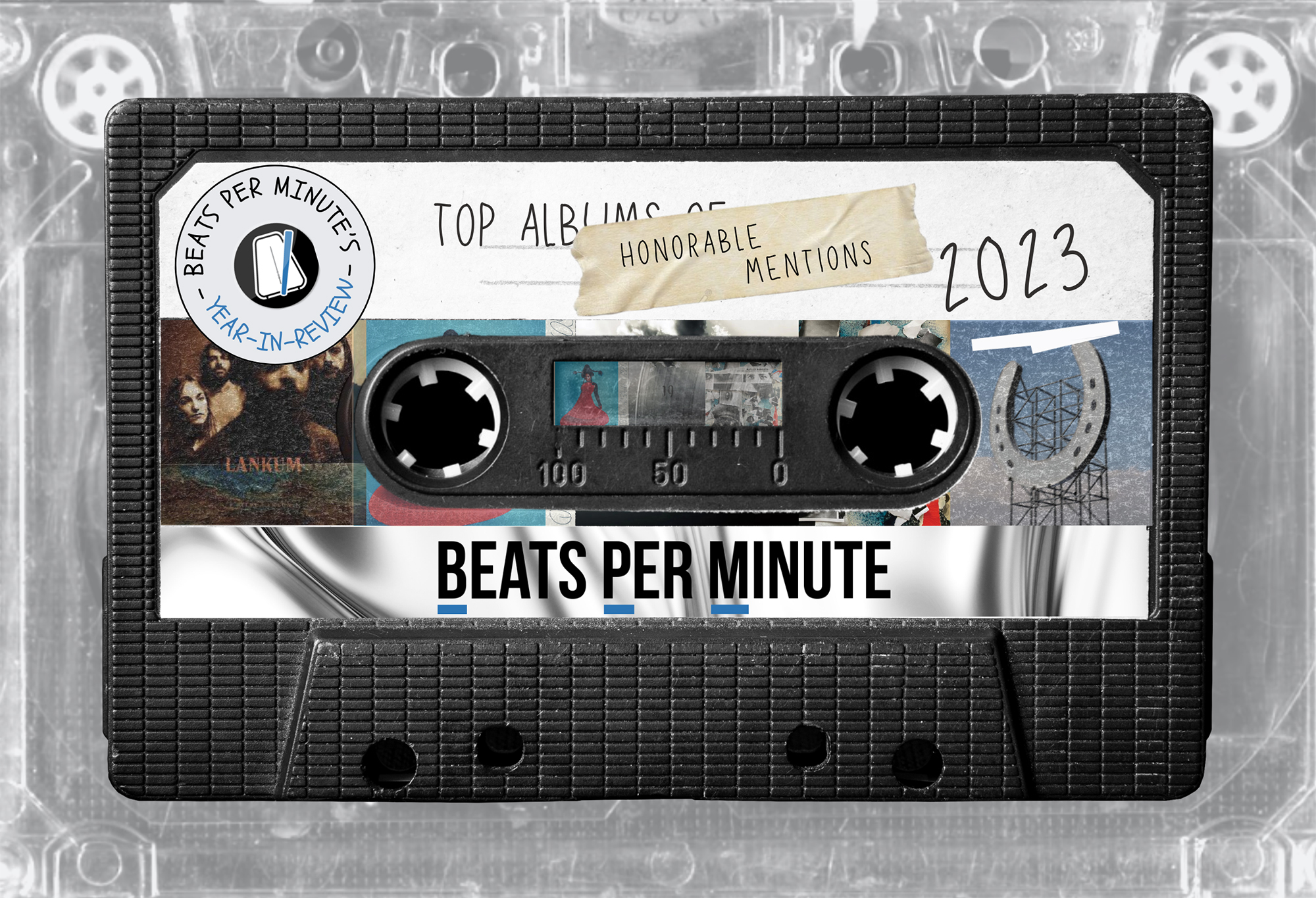We writers make connections with music – it’s both part of the job and in our nature. Albums resonate with us and the natural thing to do is to share this with the world around us, be it other fellow writers or you dear readers of Beats Per Minute. Often if something has that magical quality the original superlative sentiments ring true for many others and we end up with an album that we all agree is one of the best of the year.
We all have our personal preferences though, and as much as we try (very) hard to encourage our fellow writers to listen to a record and consider letting it change their life and/or their final rankings of best album of the year, there will always be albums that don’t manage to nab a place in the esteemed Top 50. Their lack of placement on our final end of year list is no indictment of their quality though! We have to draw the line somewhere, and inevitably some things get cut from the list – even albums we love dearly.
That’s why we at Beats Per Minute compiled a list of Honourable Mentions for 2023, so we as writers can voice our undying adoration and love of records that just missed out on a top spot on our final year-end list. Not just that, also those albums that we and seemingly no one else made an intense personal connection with; the records we think you should give a second chance to change your life; albums that may have slipped by on your journey through the year. Each writer of these records will no doubt attest to their importance as one of the best of the year, and after you give them a spin, hopefully you will be of the same mind. Needless to say, it’s an honour to present all the below albums. Here’s hoping you find something new to add to your favourites from 2023.

Amaarae – Fountain Baby
This year was incredible for female-led alternative R’n’B – so much so that any top list couldn’t possibly carry every single incredible release that had come! Still, Amaarae‘s Fountain Baby truly shone as a unique, brilliant album that defied expectations. Jumping from boisterous, harpsichord-led pop (“Co-Star”) and middle eastern vibes (“Counterfeit”), to post-punk (“Sex, Violence, Suicide”) and shoegaze (“Come Home to God”), the album seems boundless with creative spirit and joy.
There’s also the constant focus on bawdy sexuality that feels especially refreshing in a landscape that, all too often, shies away from pornographic or bisexual depiction to fit into mainstream channels. As a fellow cancer with taste for astrology (“Air, I need some air”), I especially adore her flirtatious and funny detanglement of various other zodiac archetypes in standout “Co-Star”: “I met a girl, she a saint and a demon / Two like Tia, two like Nina Sky / Me and her, it felt like threesomes / Must be Gemini” – “Crazy like Aquarius / Text me when you’re serious / Tease me like a Taurus / Them Libra bitches horrible”. Absolutely delightful and chock-full with brilliance, Fountain Baby can seduce even the most fervent denier: a sensual marvel! – John Wohlmacher
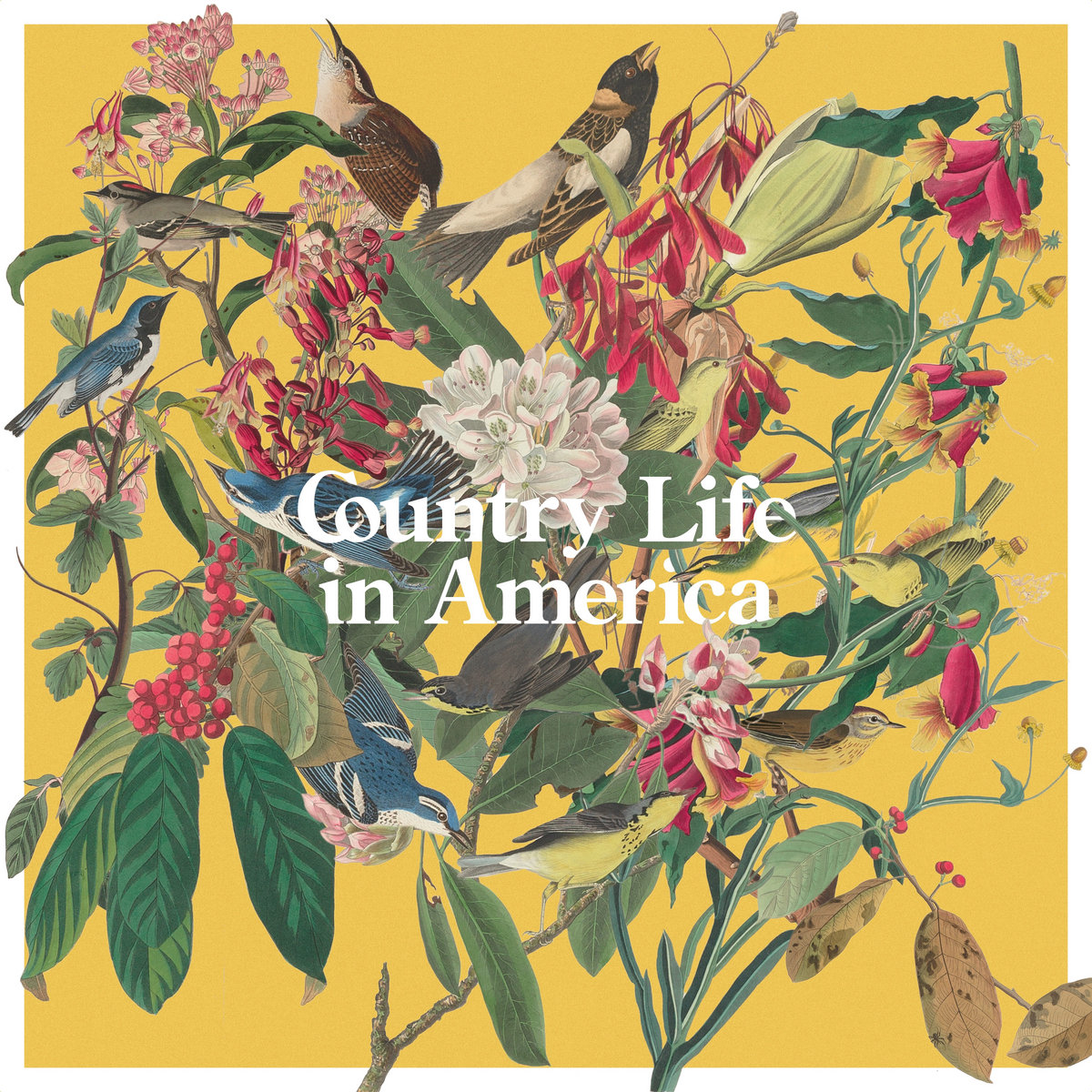
Charlie Kaplan – Country Life In America
[Glamour Gowns]
Taking a step back can be just as rewarding as taking a step forward. Country Life In America, Charlie Kaplan‘s second album, is sourced from old phone demos he made a decade ago, and captures the itchy and restless creative energy of a musician who couldn’t realise their vision at the time.
With fellow Office Culture bandmates by his side, Kaplan wanders through a small songbook of familiarity: “Rockaway” has jangles of Elvis Costello and Dire Straits in its upbeat rhythm, “She Will Stop At Nothing” evokes the Strokes with its dazed chorus, and “Talkin’ French” has sweet echoes of early Beatles material. Kaplan describes the album as being “about how growing up feels while you’re doing it” and that melancholy lingers in the summery tones and chirpy guitars. His fondness of whimsical rhymes (“We gotta get real close / If we want the most / Burning up some toast / And driving up the coast”) and unexpected musical interludes (the surprising clarinet solo on “I Was Doing Alright”, the calming and scenic piano solo break on “Talkin’ French”) keeps you on your toes. Country Life In America is evidence that a step back is no bad thing. After all, who doesn’t love a prequel? – Ray Finlayson
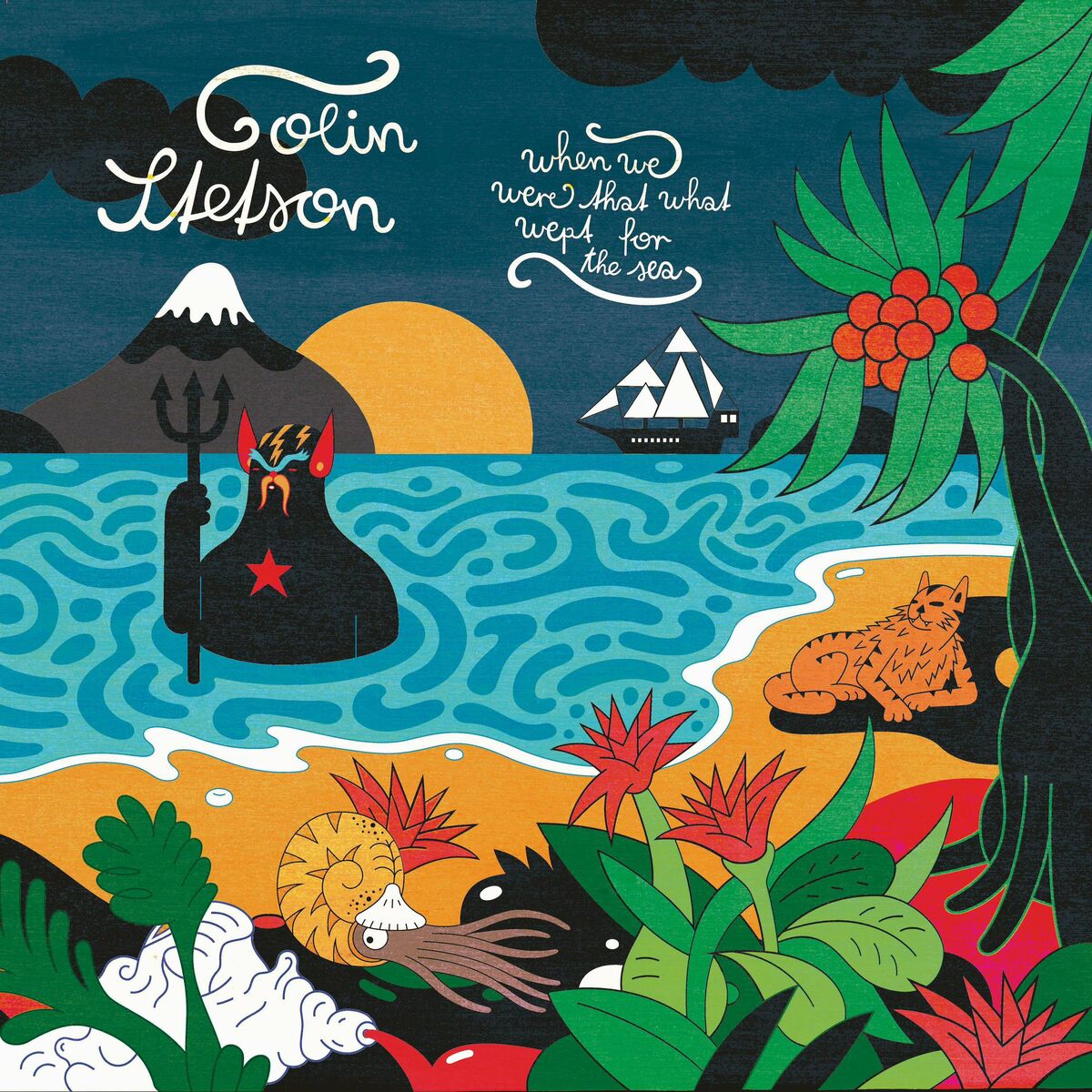
Colin Stetson – When We Were That What Wept for the Sea
Colin Stetson achieves something alchemical when expressing himself through the gargantuan saxophone draped around his neck. It’s a beast, and one that seeks to devour anyone within reach, Stetson included. But it’s also a means through which he explores the unfathomable, experiences and emotions too cavernous and too craggy to approach from a direct trajectory. And this is certainly the case on When We Were That What Wept for the Sea, his latest collection of entangling sax experiments, created and driven by the anguish felt by his father’s death. These songs are an affirmation of music’s ability to guide us through unimaginable pain, to aid in our search for meaning – even if that search deals in vagaries and unanswerable questions.
Across these songs, he’s accompanied by singer Iarla Ó Lionáird, guitarist Toby Summerfield, orchestral arranger Matt Combs, and Brighde Chaimbeul playing Scottish smallpipes. And in this tangle of musical collaboration, his grief-stricken reality becomes ours, a blanket of fear and anguish that lays across our shoulders. But nothing is stationary – Stetson moves deliberately through this atmosphere of grief, holding on to memories and using these sonorous and deconstructive sounds in service to a process of emotional reconciliation. Despite his use of improvisation, the album doesn’t wander, doesn’t waste time in unnecessary detours. Just look at “Long Before the Sky Would Open” as proof of how these torrential echoes can produce a reflective evocation of history and familial connection. The album is a devastating wonder and operates as a mirror of our own struggles to address mortality and its impact on our lives. – Joshua Pickard
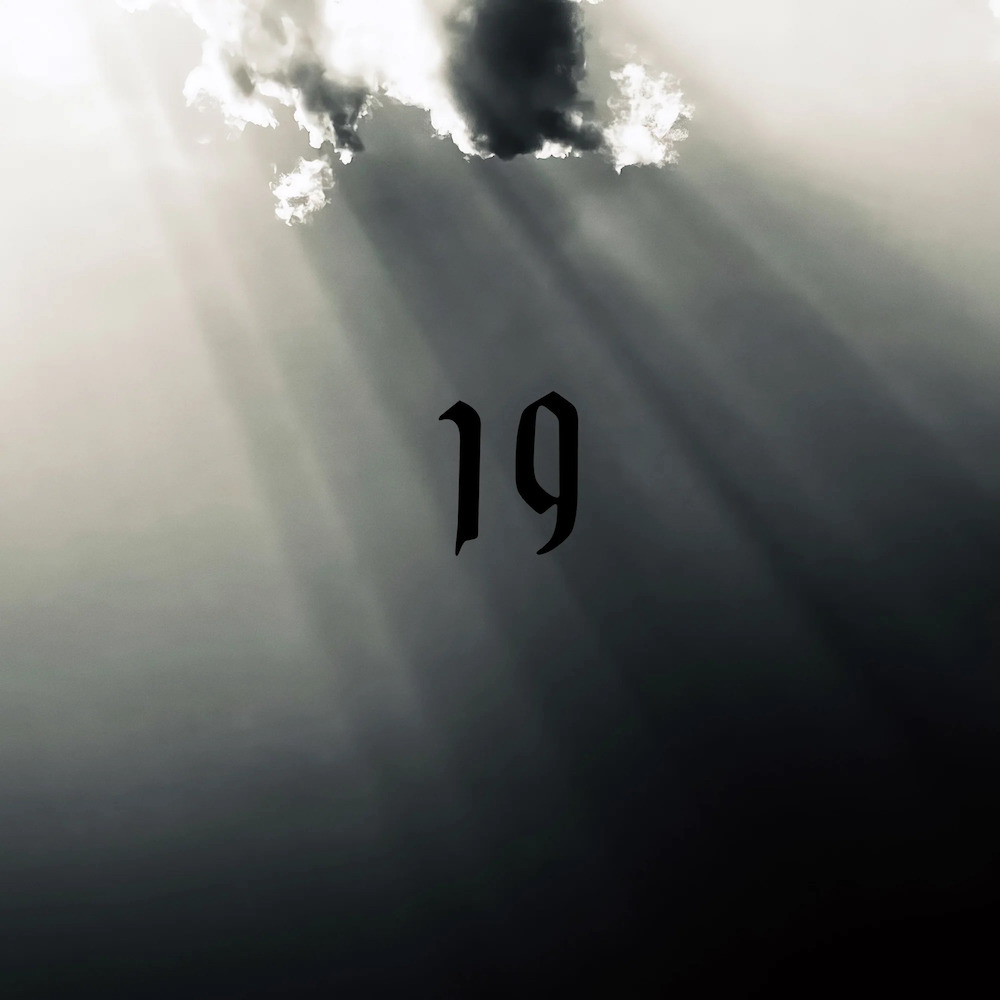
Drop Nineteens – Hard Light
What a miracle Hard Light is! Inspired by Deerhunter’s Halcyon Digest and Spoon’s Transference, 90s cult-band Drop Nineteens crafted a sprawling, emotional comeback record, that ranks among the very best of American shoegaze releases. Somehow, they sound barely older than they did on their legendary 1992 debut, Delaware, only with slightly more contemporary production values documenting the passing of time. Had “The Price was High”, “Scapa Flow” or “Tarantula” come out in ’95, they would be classics by now, positioned on mixtapes between “1979”, “Every You Every Me” and “Lovefool”, while elegiac closer “T” could have stood next to any track off The Cure’s Bloodflowers.
It’s good to have this band back, right around the time that American shoegaze seems destined for a comeback, with its 90s canon being reissued and current bands slowly rising to prominence. Delaware always seemed an odd one out, experimental and hard to pin-point where Drop Nineteens were going. Now, fully formed in age and enriched with a new sense of confidence, the Boston group can continue this story into the living present. And they really do sound better than ever! If you need one guitar-led record to carry you through the winter cold, it should be Hard Light. – John Wohlmacher

Empty Country – Empty Country II
Offering a familiarly bleak view of American life, Joseph D’Agostino, aka Empty Country, charges his songs with depth and defiance, navigating growls, muted overtures, and delicate falsettos. His range is impressive, including stripped-down piano accompaniments and full-tilt shoegazey roils. In this way, Empty Country II builds on D’Agostino’s 2020 solo debut (following the break-up of his former band, Cymbals Eat Guitars), showcasing his growth as a singer, songwriter, and sonic curator.
“Pearl” is a dire yet melodically buoyant take on the running-in-circles slacker life. Accompanied by a metallic and warpy guitar and explosive splashes of percussion, D’Agostino spins such lines as “I’m on suspension for selling all my Ritalin”, “I see some far-out shit that isn’t there”, and “I’m a tunnel caving in / and a goddamn great American”. His vocal pivots from plaintive confessionalism to mock-Brit timbres that recall Bowie’s early-70s work. As much a jaded bildungsroman as a wry op-ed, “Pearl” stings the listener with disturbing observations yet is tinged with an eccentric humor.
“Dustine” is a more spacey, ethereal take on “clinics in dead malls”, “hallucination hydrangeas”, and “the skeletons of Cherokees”. The song moves between gossamer and turbid mixes, tapping the legacy of Western nihilism. Ezra Furman’s Transangelic Exodus comes to mind, though D’Agostino embraces a more suburban and generational perspective, whereas Furman focuses more on the plight of the loner/outsider and cultural underdog. Spanish Love Songs’ No Joy, also released this year, touches on similar depictions, though Dylan Slocum’s vocal is less versatile – albeit in its own way equally compelling – and the band’s sonic forays more constrained.
The lyrics of the 12-plus minute closer “Cool S” unfurl like a blend of hip-hop motifs and “Incident on 57th Street”-era Springsteen, opening with the lines “We murdered Mikey / he begged and cried / as I took his eyes and then / we kicked him until he was quiet”. Plotting a course replete with instrumental and atmospheric interplays, transitions, and culminations, D’Agostino displays his gift for extended composition, moving in and out of a garage-y mix while sustaining a modishly anti-guitar-hero stance.
Though undeniably indebted to the broad category of Bleak Americana, Empty Country II frequently transcends zeitgeist and aesthetic tells, pointing to archetypal themes. Additionally, the project oozes signature style, D’Agostino reveling in evocative gestalts and a striking affinity for high drama. This is an album that reveals itself over time, the sublimeness of D’Agostino’s achievement growing clearer and clearer with each listen. – John Amen
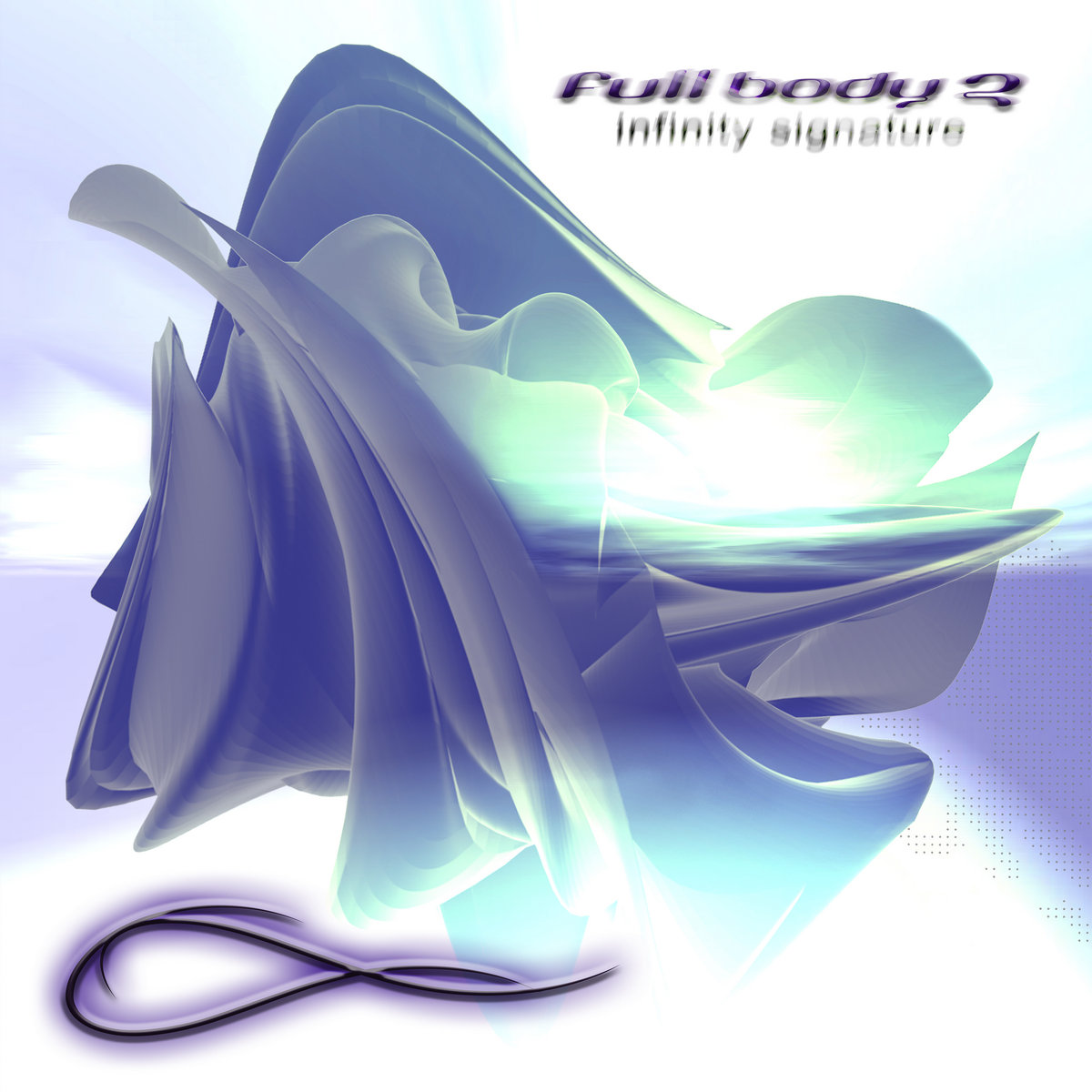
Full Body 2 – Infinity Signature
Of the the most unique of a burgeoning scene of American shoegaze groups, Full Body 2 already released two short three-track EP’s of translucent, experimental music that felt like an alternative reality broadcast. With the six songs of Infinity Signature, the band has released a veritable mini-LP, that re-imagines well trodden genre paths. Shoegaze through the neo-Y2k filter of Zoomer aesthetics, retro-fitted with Synthesizers to fit a PlayStation 2 Soundtrack – My Bloody Valentine on an iMac G3 flavors!
The mix is intoxicating, and surprisingly vibrant! Where “enix wake” and “wonder limit” seem fairly classic shoegaze songs akin to fellow electronic nugazers They Are Gutting a Body of Water, “nokia login” uses drum’n’bass to bring a hint of Warp-label cool to the selection, while the thundering breakbeats of “blue trio” hint at jungle. The hypnotising beats of the ambient track “self:heal” reaches the transcendental quality of Slowdive’s 5EP, before closer “moonworld” returns to the energy of Kevin Shields’ most blissful compositions. An immensely promising taste of talent, which begs for a vinyl release and should be among the top shoegaze releases, no matter the short runtime. – John Wohlmacher
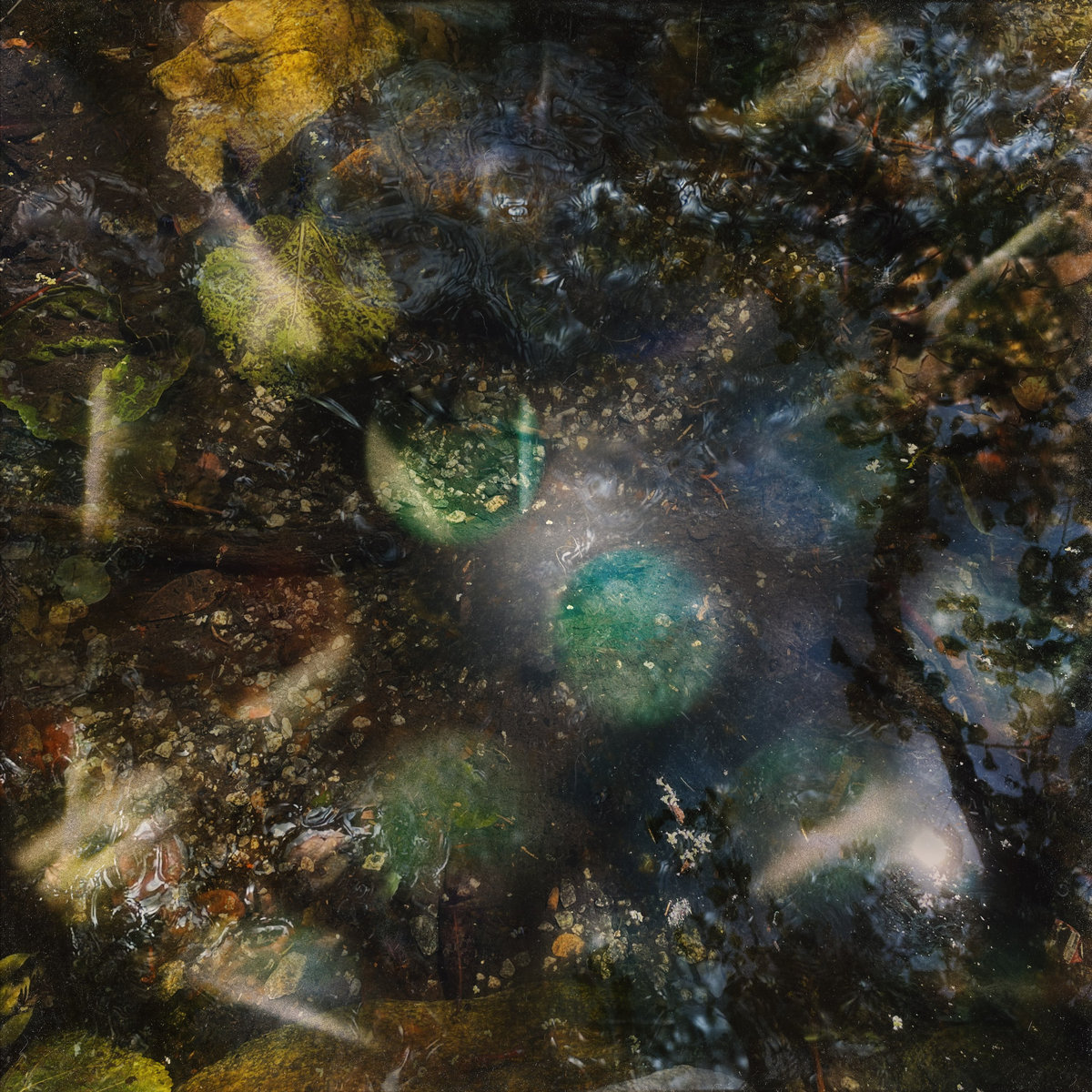
Green-House – A Host For All Kinds Of Life
Solastalgia: “the distress that is produced by environmental change impacting on people while they are directly connected to their home environment.”
This is the reference point for Green-House‘s third ‘eco-ambient’ album, A Host For All Kinds Of Life, and its presence lingers across the record. Olive Ardizoni and Michael Flanagan want listeners to take stock of their surroundings, engage in the world before their eyes, and find joy in uncertainty. The natural ambience of the music here feels like life bustling away under a microscope. It easily becomes a reliable companion, a cushiony and mossy friend to soundtrack a busy life. Strands of melodies swim about, a familiar instrumental tone might emerge (the 50’s sci-fi theremin of the glistening “Luna Clipper” is a favourite highlight), and come the unmatchable melancholic beauty of “Everything Is Okay” (punctuated by a heartwarming voice message from Ardizoni’s mother) at the end of the album, what feels like a bonafide track blossoms before your eyes. The world is burning, but A Host For All Kinds Of Life is sanctuary. A gorgeous and accessible ambient record, it demands so little and reaps so many precious gemstones with each repeated listen. – Ray Finlayson
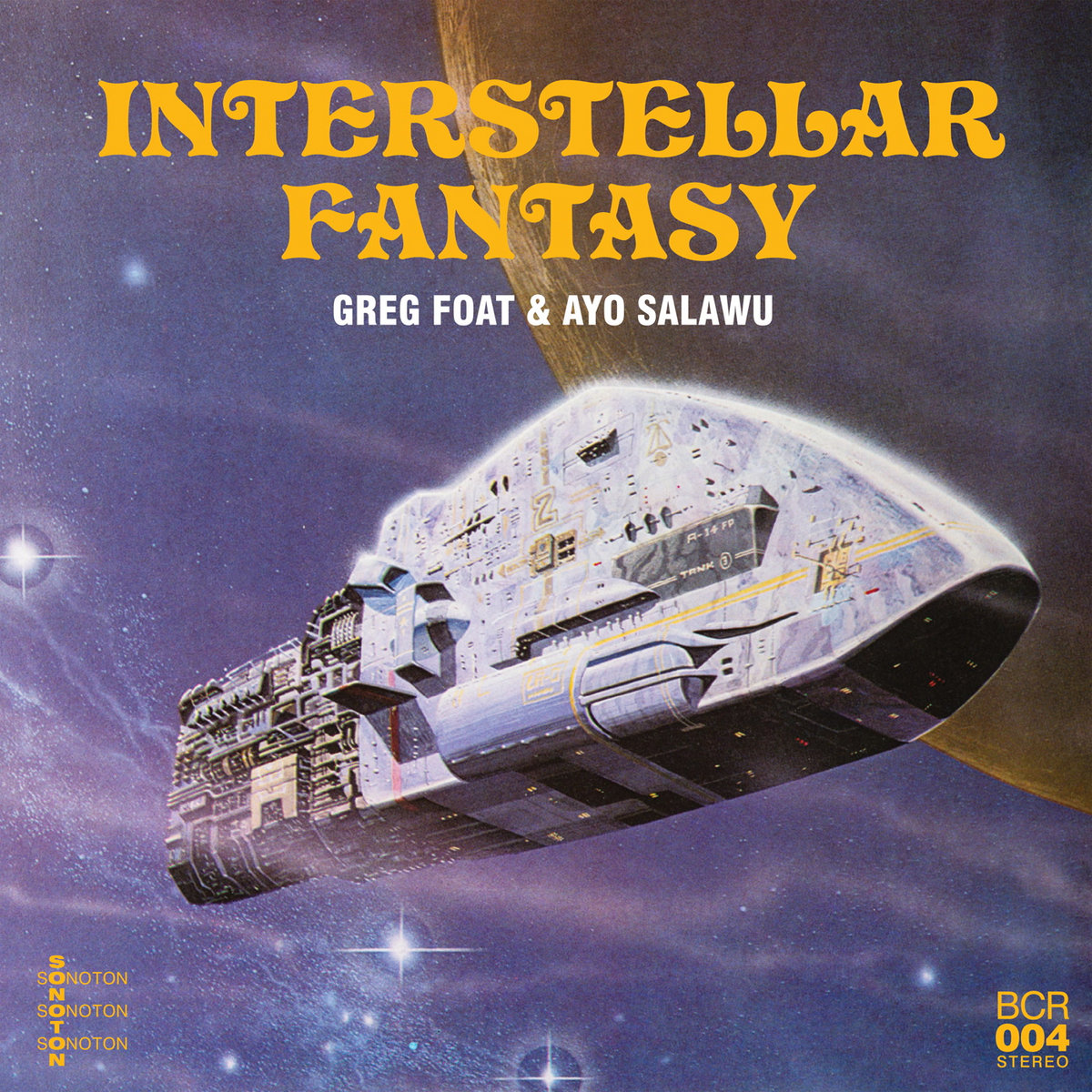
Greg Foat & Ayo Salawu – Interstellar Fantasy
[Blue Crystal/Sonoton]
File under music that sounds just like its cover art. Not so much futuristic as retro-futuristic, Greg Foat and Ayo Salawu‘s Interstellar Fantasy lopes gently through Kraut-influences, ambient, jazz, and, perhaps above all, library music. It sounds like what folk might have imagined music on a stair cruiser to sound like when Gene Rodenberry was first exploring the Federation. It’s certainly something to put you at ease during the seemingly endless lull of hyperspace. Or, you know, to make your room feel a bit more otherworldly as you gradually prepare to carry yourself to your last few days of work before the winter holidays. – Chase McMullen
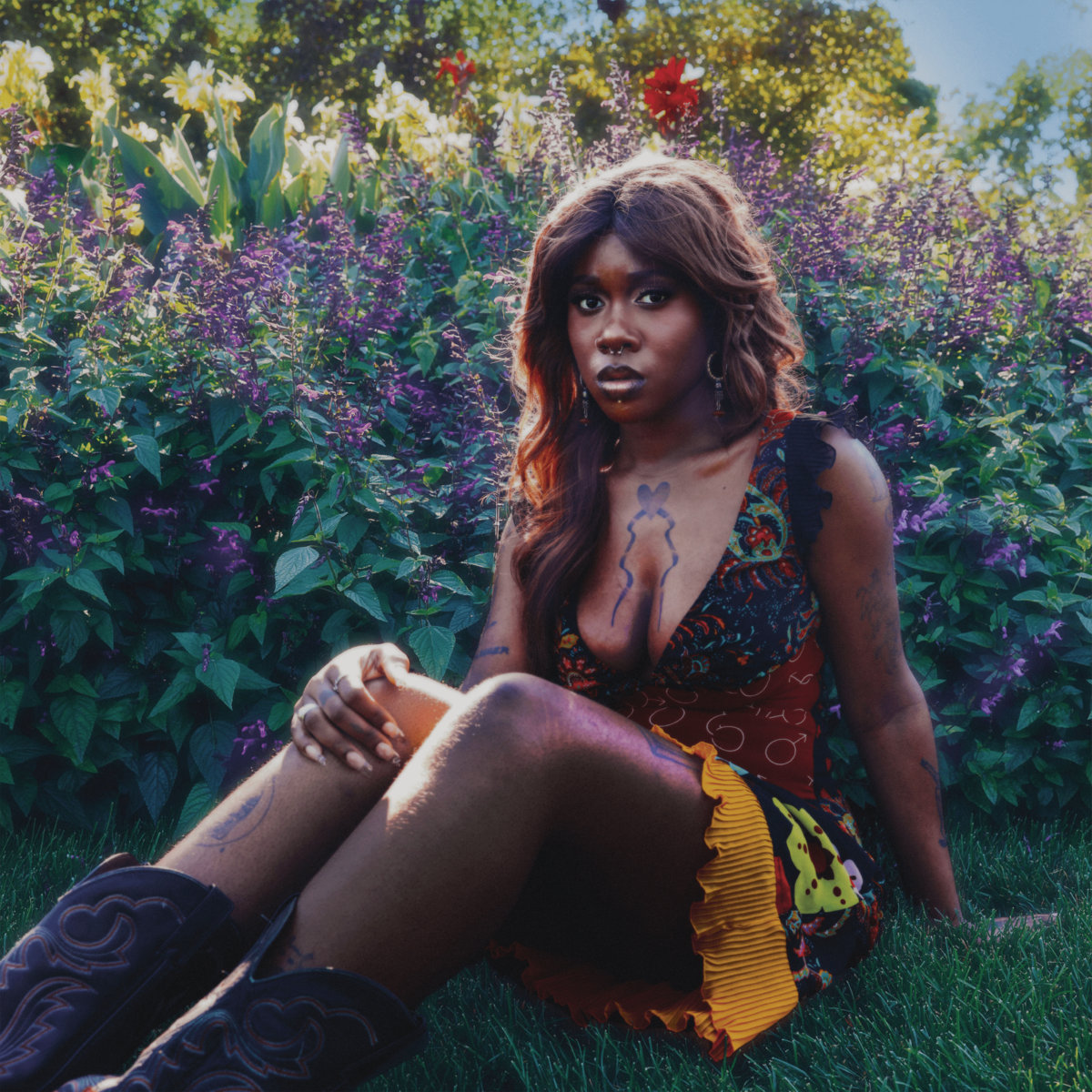
Kara Jackson – Why Does The Earth Give Us People to Love?
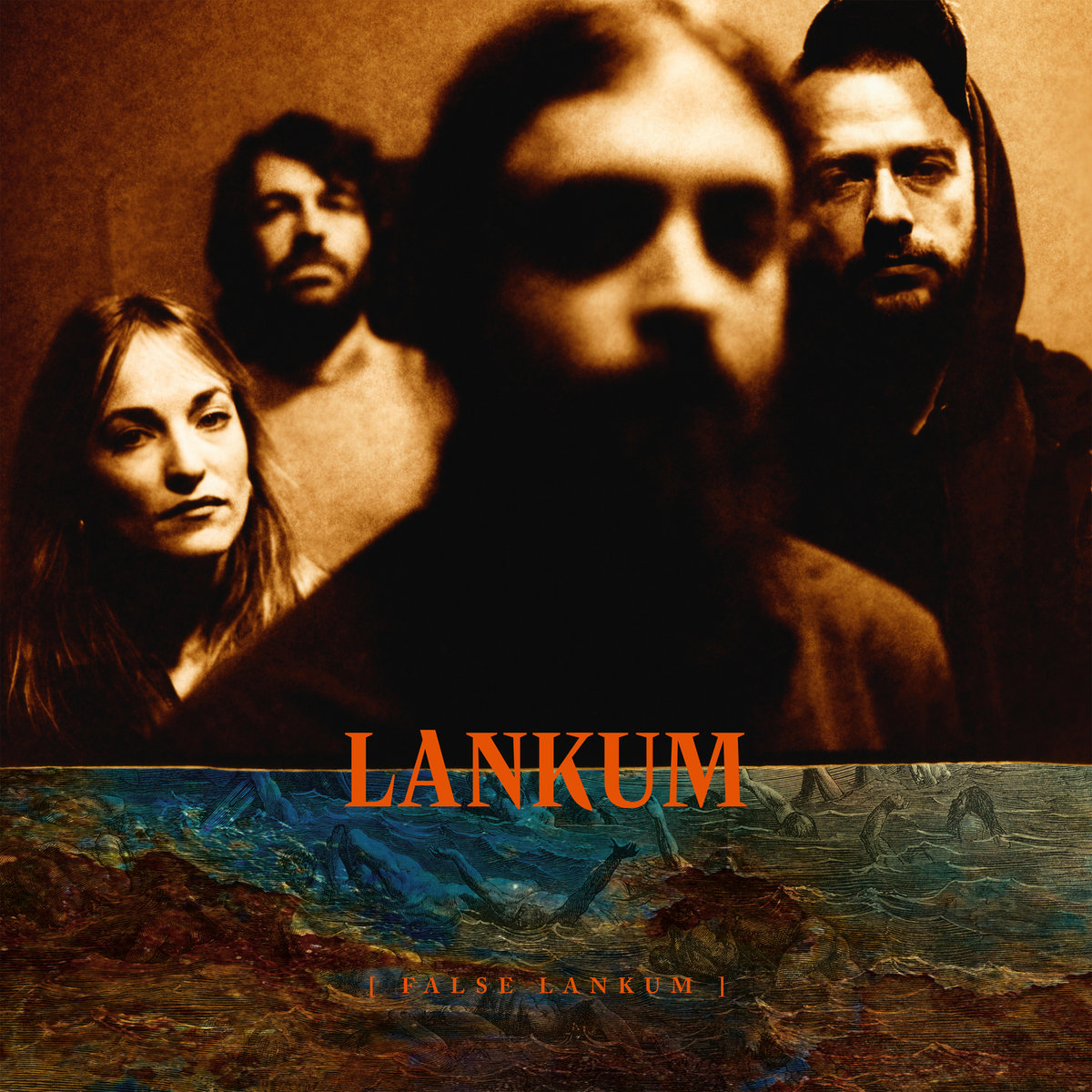
Lankum – False Lankum
Across their albums to date they’ve fused the traditional with a fascination with drone and dissonance. They love a harmony, whether it’s the four voices or the clash of swirling instrumentation, creating slowly building waves of noise that add drama to these old tales. With False Lankum they cooked up their most ambitious and rewarding release yet, unspooling these folk tales into engrossing epics. The horror of suicide and death lingers, and Lankum’s droning can make it loom larger and blacker than ever. Equally they can shake it off and head into an angular jig that’ll bring the house down, or simply defuse the whole situation with glorious harmonic calmness. Whether reinterpreting classics or writing their own, they never skimp on dynamism in their own dusty way.
The traditions of folk music are strong with this group and they are leading the path when it comes to dragging it into the modern day while still keeping the history alive. – Rob Hakimian

Liv.e – Girl In The Half Pearl
Abstract and nocturnal, Liv.e‘s debut album Girl in the Half Pearl stands in the rich tradition of Afro-futurism that explores experiences informed by black identity: gender, violence and sex come together for a wild, avant-garde adventure that seems like it marries the body-horror of early Industrial to the soul of smooth jazz and the occult Y2k anticipation of British Ambient House.
“When I look inside my brain / There were all these webs of pain / I always need a fly swatter / Spidey don’t come”, the Dallas born musician reflects over the breakbeats of opener “Gardetto”. In a way, Liv.e’s music represents an attempt to make sense of these moments in time, but there’s a constant sense of the abject, like the bubbling beats that cut through the bliss of casual sex of “A Slumber Party”. Speaking of that track: Girl in the Half Pearl is also rich in unabashedly sexual poetry: “Brought out the wines for them aftermaths / Now her panties movin’ down her ass / And I sneak over and I bite it / And she never take no offense to that”. How disturbing those bodies that bring please can be is reflected elsewhere: “Six Weeks” seemingly tells a heartbreaking story of loss, intercutting horns with harsh, Björk like beats. “You showed me love where it’s hard to find / Inside of me is where you did reside / Like a hurricane, you came in bad weather / Left an abandoned home with no peace of mind”. Is it about a brief affair or the loss of a child?
“Ghost” uses the imagery of paranormal horror to face sudden death: “I stayed awake till dawn / I felt that shit inside me / That you were really gone / You left before they showed me / You left and then they called / You were all alone / You walked on the side streets / You had no where to go / Can’t stay right beside me”. By the end of it, Liv.e screams her lyrics with harsh defiance. It’s this dark psychedelia that is all her own, hard to compare with any of her contemporaries, that makes Girl in the Half Pearl such a standout record. Like all works of bold spirit that present futurist aesthetics, the world might have to take some time to catch up with this masterpiece. – John Wohlmacher

Margo Cilker – Valley of Heart’s Delight
Margo Cilker has a voice built from memories, both her own and those that just seem to pass through her on their way to some resting place just out of sight. Her songs are living things, breathing and gasping, a collection of muscles and tendons aching for open spaces. Her debut album, Pohorylle, embraced the primordial histories of folk and country music, lines drawn from Harry Smith to Brandi Carlile, resulting in a collection that felt scattered by warm winds and cool fall evenings. It was lean and loosely woven, a beautiful rumination on home and self and the things that happen to us as we leave one and discover the other. Valley of Heart’s Delight is something of an expansion in her musical palette, a broadening of influence and execution, and occasionally recalling the barbed wit of John Prine and the cracked pop sensibilities of Aimee Mann.
Opening with “Lowland Trail”, a rollicking acoustic rambler that sets us off on down the highway, dust kicking up as the wheels turn and carry us away from our troubles, the album feels fuller, more lived-in than its predecessor. Brass comes rumbling in on “Keep It on a Burner” while closer “All Tied Together” is an immaculate beauty filled with a softly spoken narrative anchored by unfurling piano notes and the shivering of guitar strums. We’re led, willingly, side-by-side with Cilker, through this world of heartache and hesitation and self-examination only to find that everything is going to be alright as long as we hold on those who hold our hearts close. There are tears, and the relief we experience cuts to the marrow – and Valley of Heart’s Delight is a friend and a mother and a father and a voice holding back the darkness as we wander together. – Joshua Pickard
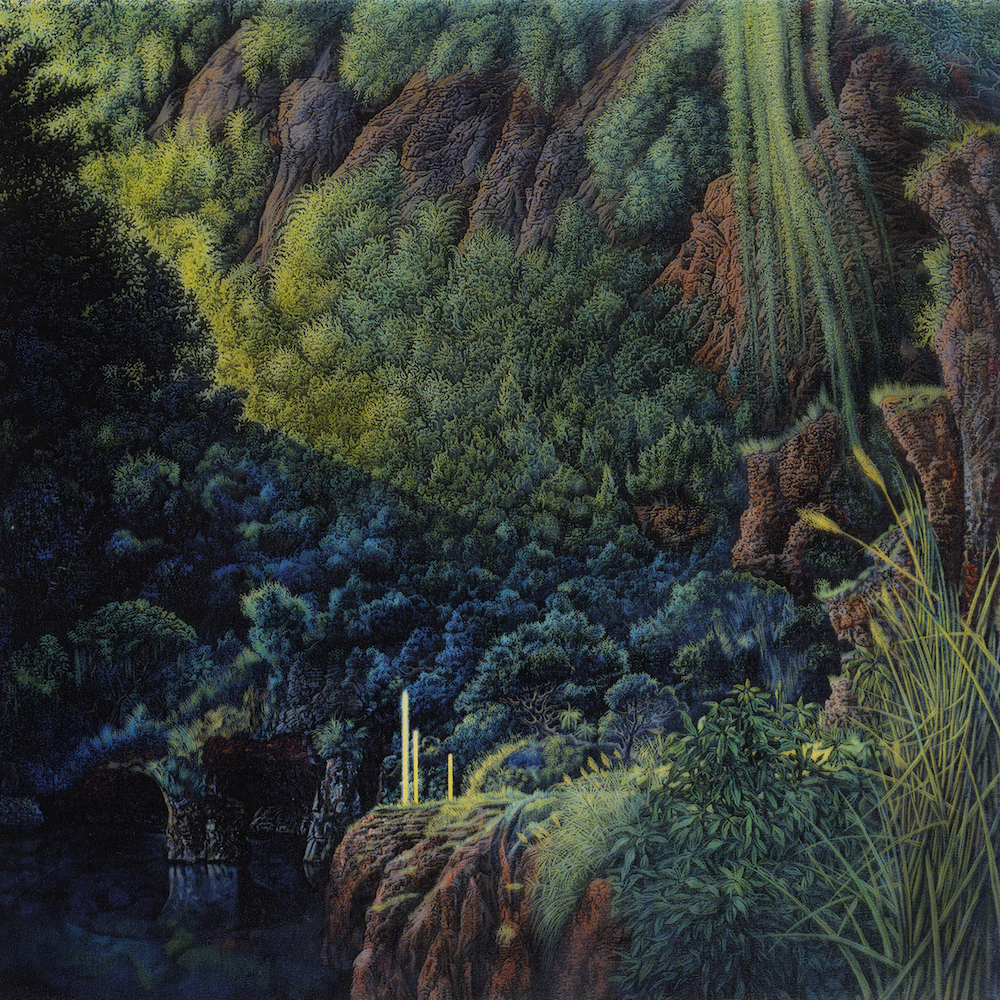
Marina Herlop – Nekkuja
[PAN]
Catalan musician Marina Herlop has curated a unique musical language on Nekkuja, an experimental pop dialect that incorporates details and influence from artists such as Björk, Rosalía, and Amber Coffman. Marked by a restless and ever-shifting melodic peculiarity, the album finds her opening up to the possibility of renewal and reorientation, developing spiked atmospheres where her wispish voice dances and twirls in fields of fractured pop ideologies. These songs skitter from one place to the next without regard for the circumstance of their own origin, drawing together warped acoustic instrumentation, clattering piano tones, and a truly enigmatic vocal presence in search of creative rejuvenation.
There’s a sense of fantastical abstraction to Nekkuja, a feeling of pieces not quite fitting together while still providing necessary commentary on the process of creativity within an enclosed headspace. Herlop’s voice is a prism, filled with contrasting tonalities – simultaneously passionate, aloof, and filled with an undeniable hope. The early morning sunrise of “Karada”, spilling over with pastoral field recordings and ethereal rhythms, gives way to the low evening introspection of closer “Babel”, a song that welcomes us into its labyrinthine corridors before stepping away and leaving us to uncover its mysteries before we become irrevocably marooned in a sea of elegiac pop deviations. – Joshua Pickard
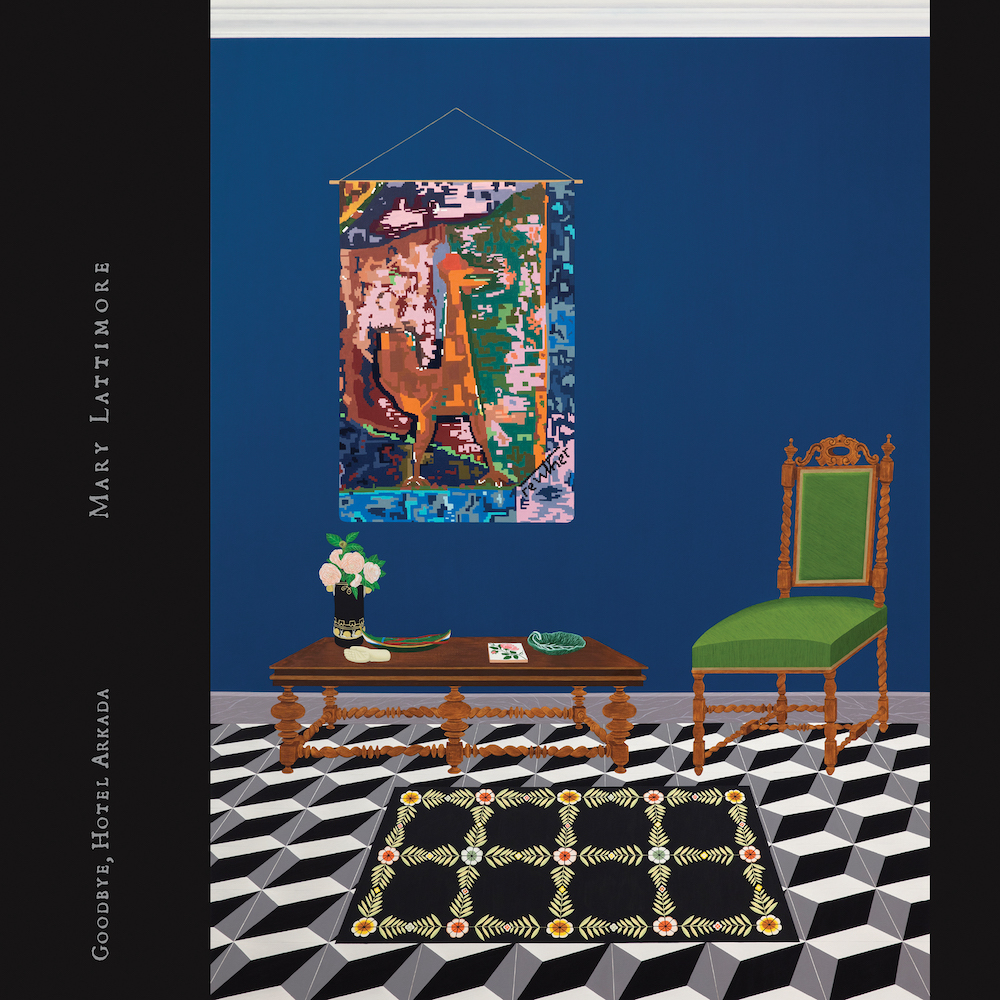
Mary Lattimore – Goodbye, Hotel Arkada
[Ghostly International]
It almost astounds me that this album hasn’t received more love and support. Mary Lattimore’s music has always been lovely, but with Goodbye, Hotel Arkada she crafted something that feels truly singular. With members of The Cure, Slowdive and more in tow, the album is layered, distinctive and always worthy of rapt attention. It’s a gentle companion on the go, rendering even the public alienation of subway transit as something beautiful. Melancholy and hopeful at once, it deftly plumbs memory with the appreciation of someone who understands just how fleeting it all is, dashing to comb through moments before they’re lost, not with sadness, but with joy for the chance at that last glance. – Chase McMullen
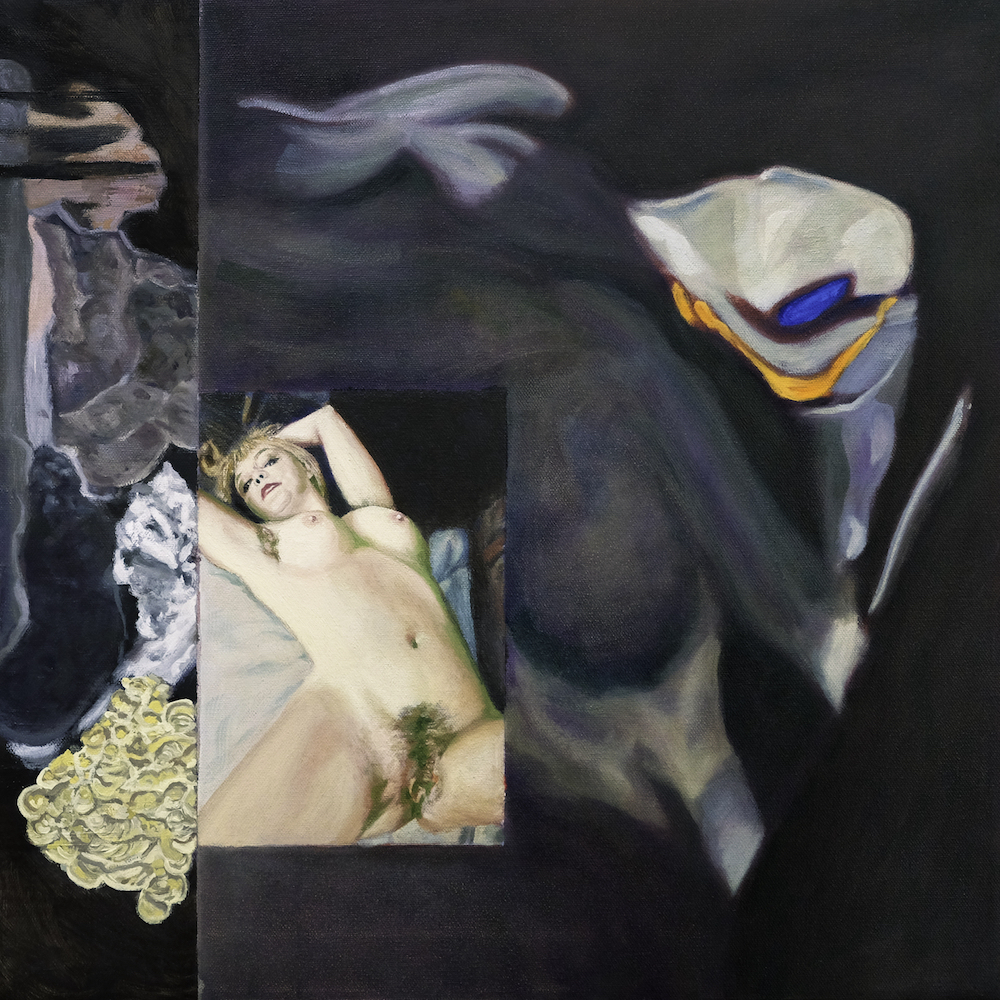
Mega Bog – End of Everything
The new record sees Birgy switching from guitar to piano and synth as the basis of her songs. This means that the jazzy inflections that have characterised her previous work are toned way down, but the urgency and immediateness is enhanced. In each of the songs on the first half of End of Everything, the interplaying synth lines and the propulsive drumming from Big Thief’s James Krivchenia locks in the energy, slowly turning the dial upwards in tandem with Birgy’s desperation, propelling the songs to breathless finales and exceptional vocal prowess.
End of Everything is not an obviously uplifting album, but it is in many places breathtaking. The seeds were planted in the pandemic, as the theme of separation makes clear, but Birgy’s abstract lyricism and vocal urgency ensures that they are not stuck in that time period; they are as much related to current issues being faced every day, personally and globally. – Rob Hakimian
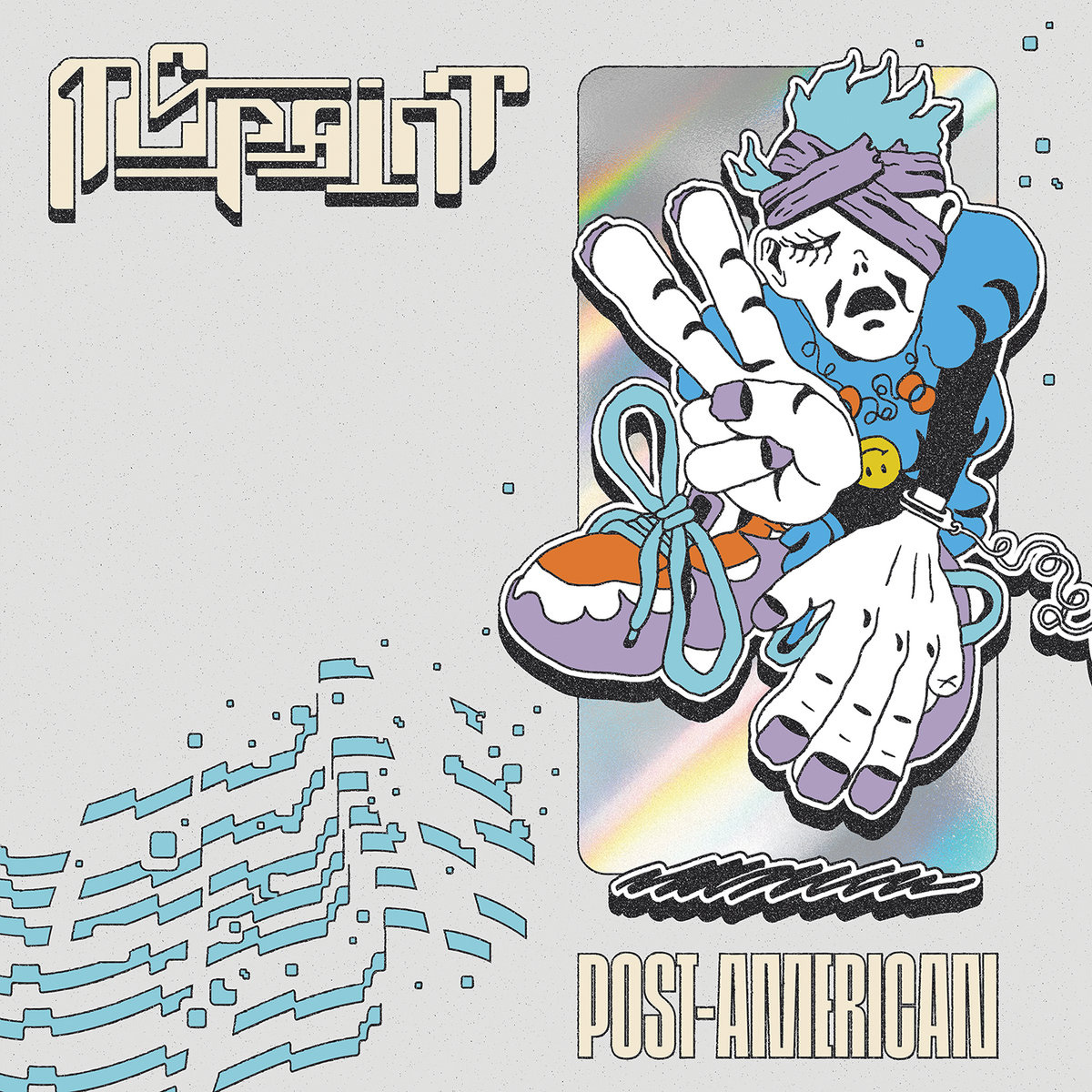
MSPAINT – Post-American

Nico Paulo – Nico Paulo
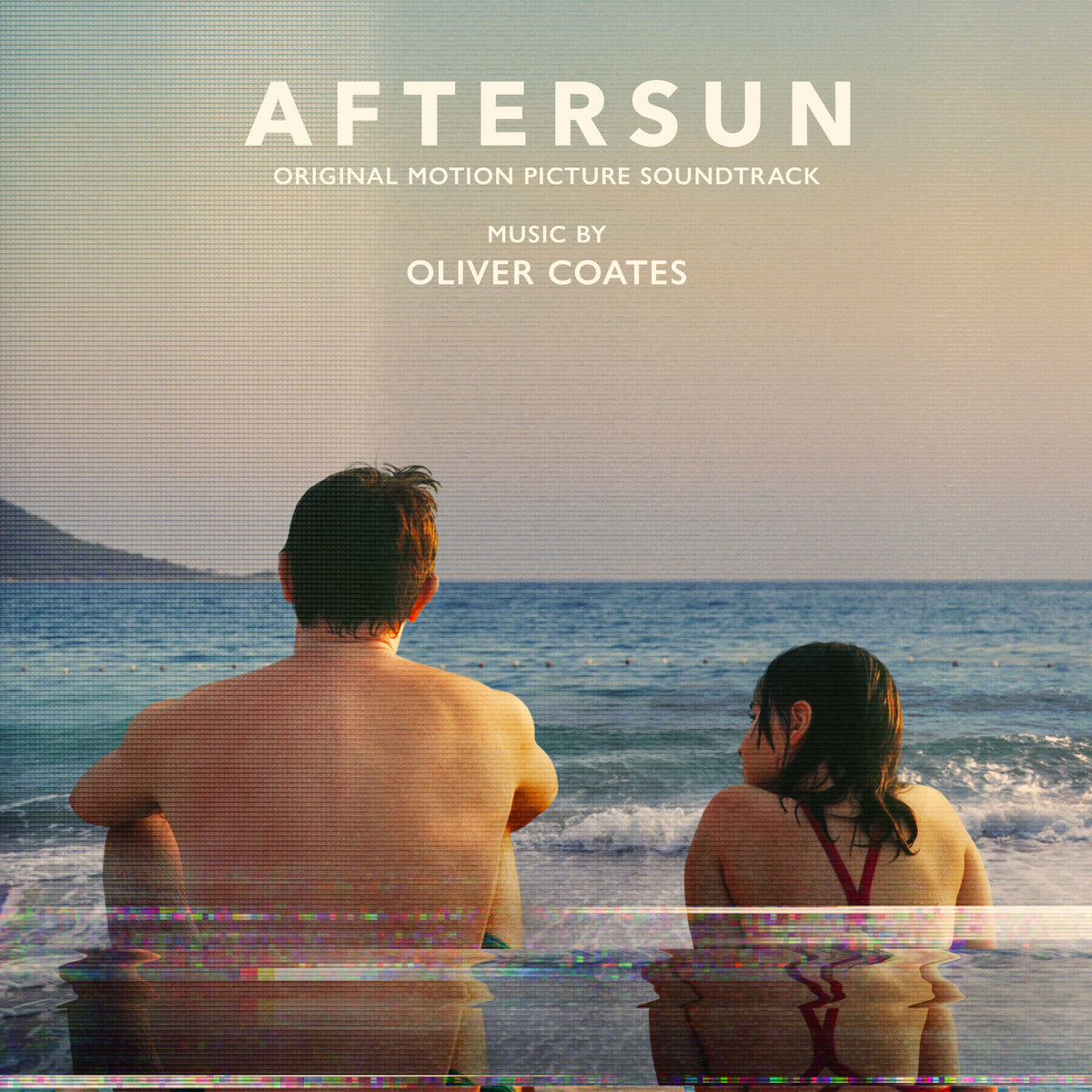
Oliver Coates – Aftersun (Original Motion Picture Soundtrack)
Charlotte Wells’ stunning debut feature film Aftersun is a masterclass in quietness, unspoken communication and metaphysical distance. In a film of such delicacy and space, the soundtrack is going to have a big role to play in maintaining and augmenting the atmosphere. Step in Oliver Coates.
The London-based cellist and composer has put out a string of releases straddling modern classical and experimental electronic, and has made the natural move into film scores recently. His score for Aftersun is electronic focused, but with strains of manipulated strings shuddering and harmonising throughout, creating a pungent haze of melancholy.
Within the divine sweep of this score he seems to entangle everything that is going on between the father and daughter on screen – the overwhelming love and awkwardness seesawing back and forth. Simultaneously, Coates casts it all in nostalgic, longing hues – putting us in place of the grown up Sophie looking back on the events of the film all those years later.
But Coates’ Aftersun is equally moving even when separated from the film. The ribbons of cello shot through the burbling, oozing, glitching electronics, receding and growing, speak to an ever-changing internal landscape of wistfulness. It’s the perfect mood music for mulling over whatever emotional troubles may be looming in your mind. – Rob Hakimian
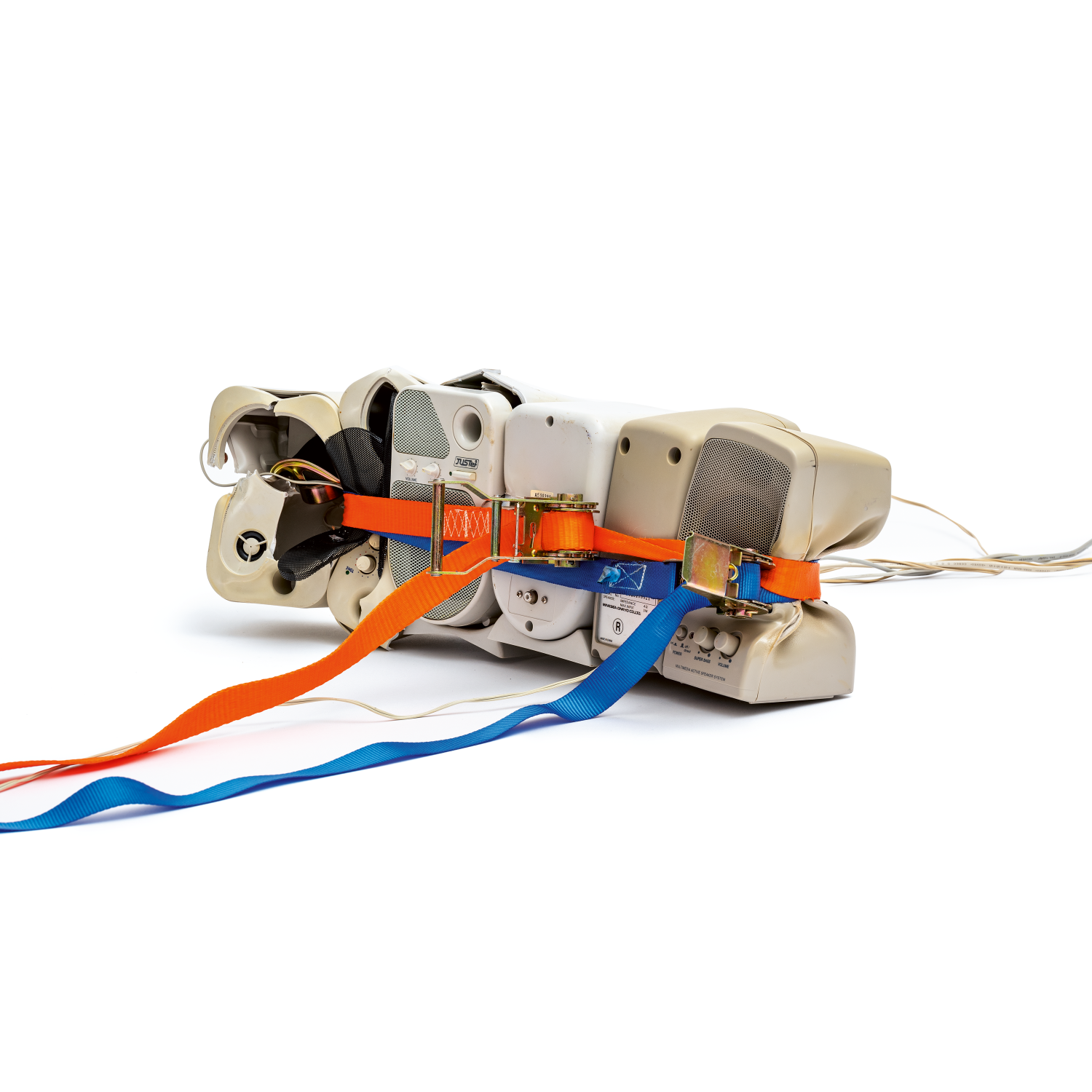
Oneohtrix Point Never – Again
There has always been an element of direct and indirect communication in Daniel Lopatin’s work as Oneohtrix Point Never – in fact, his albums often function as conversations, abstract dialogues documenting multitudes of experiences and emotions. Again, his latest collection of electronic ephemera, finds him dissecting the past, the present, and the future, an interior monologue concerning influence and musical cultivation. More accessible in tone and temperament than past records, Again distills countless genres into manageable chunks of sound and opportunity. There’s room enough for all manner of shoegaze, prog, pop, and rock aesthetics to coexist and compound within the maximalist architecture he’s built across these 13 tracks.
What can we take with us into the future? What can be turned into something useful? Is there anything from the past that still sustains itself? Bathed in mutated pop arrangements, broad strokes of orchestral noise and Lopatin’s inimitable sense of electronic composition, Again seeks answers to these questions. As with any impressionistic wonder, answers aren’t exactly forthcoming. The usual cavalcade of blips and bloops and drones are sandwiched between more identifiable structures – pop and rock impulses are vivisected and laid out, often euphoric and beautiful. It’s an album possessing an adoration for the act of creation and for how that act can speak to others across generations. – Joshua Pickard
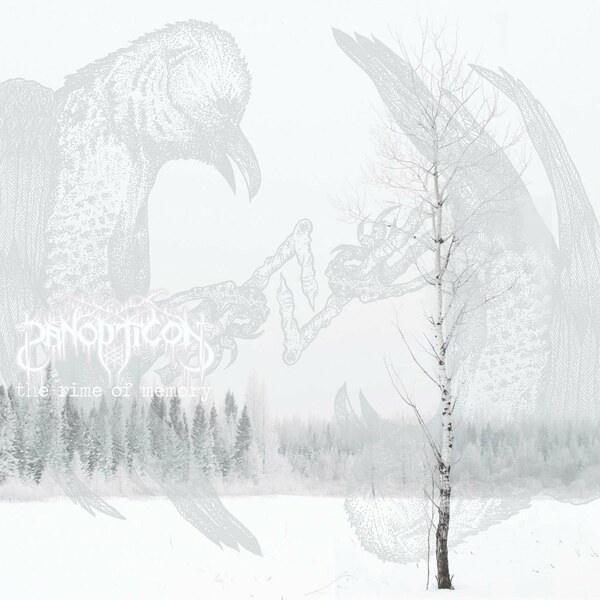
Panopticon – The Rime of Memory
[Bindrune Recordings]
Kentucky metal alchemist Panopticon (founded and curated by Austin Lunn) has the unique ability to conjure diabolical atmospheres filled with euphoric expressions of the divine – though the concept of divinity is somewhat more fluid to them than to most other people. The Rime of Memory is awash in this impressionistic imagery, adorned in various states of musical deformation. It’s gothic metal, ornate and organic and filled with the wonder of nature’s fury and grace. On “Winter’s Ghost”, a bit of folky reverb lulls you into a peaceful revelry before the gates burst open and the band pummels the earth into submission.
“Cedar Skeletons” is a metallic monolith, shifting between brutal musical barrages and slower shoegaze excavations, offering torrents of rhythmic expansion anchored by moment of experimental density. You’d be forgiven for thinking that it would be impossible for music of this intensity to be subtle, but Lunn finds room to explore melody amid surprisingly nimble forms within these deceptive narratives, accommodating each song with the space it needs to bloom and contract as dictated by powerful unseen forces. The Rime of Memory employs unchecked tidal forces that yaw and tremble as each moment is yoked with great mystery and covert sentimental musings, each song possessing a desire to push itself further into the abstraction of its own creation. – Joshua Pickard
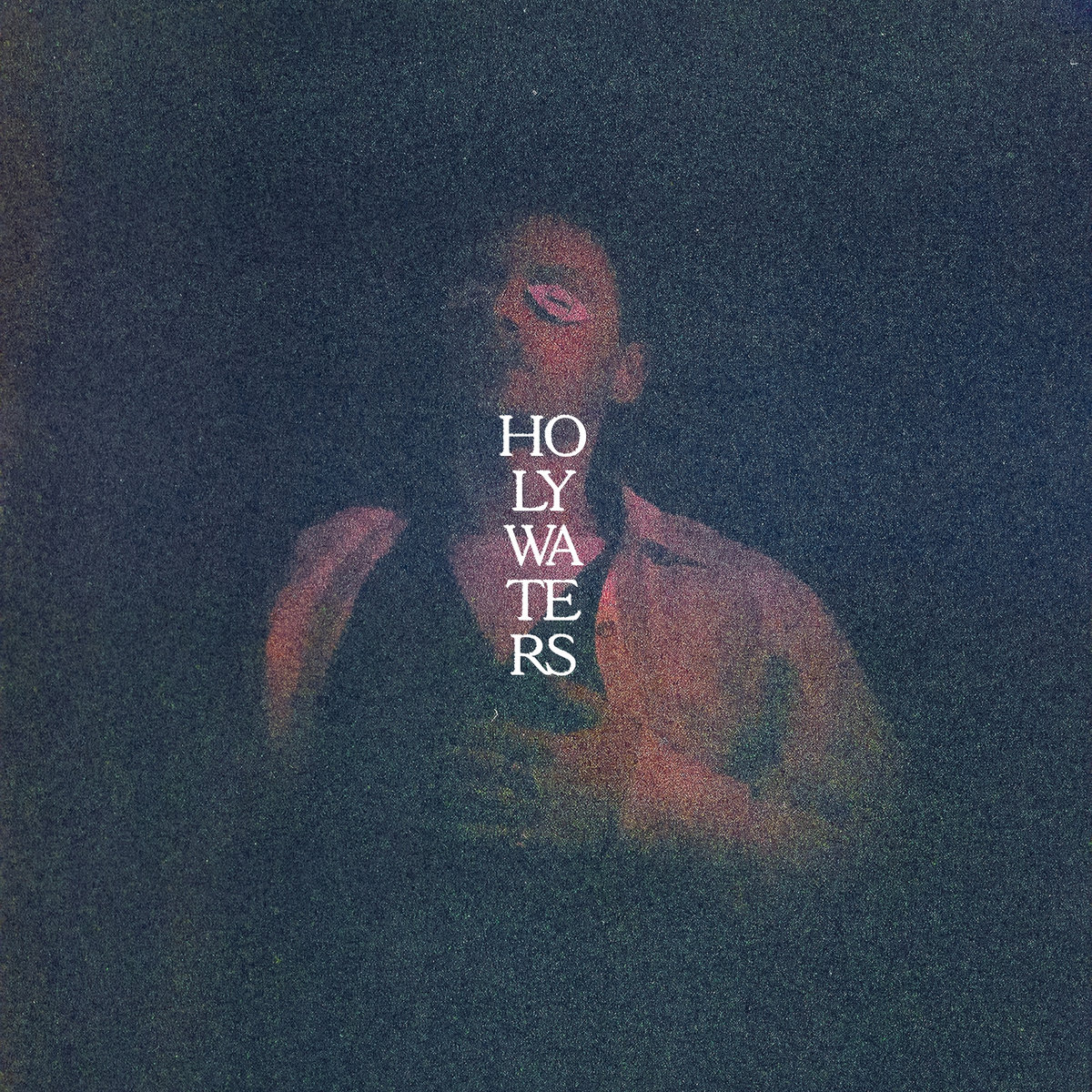
Puma Blue – Holy Waters
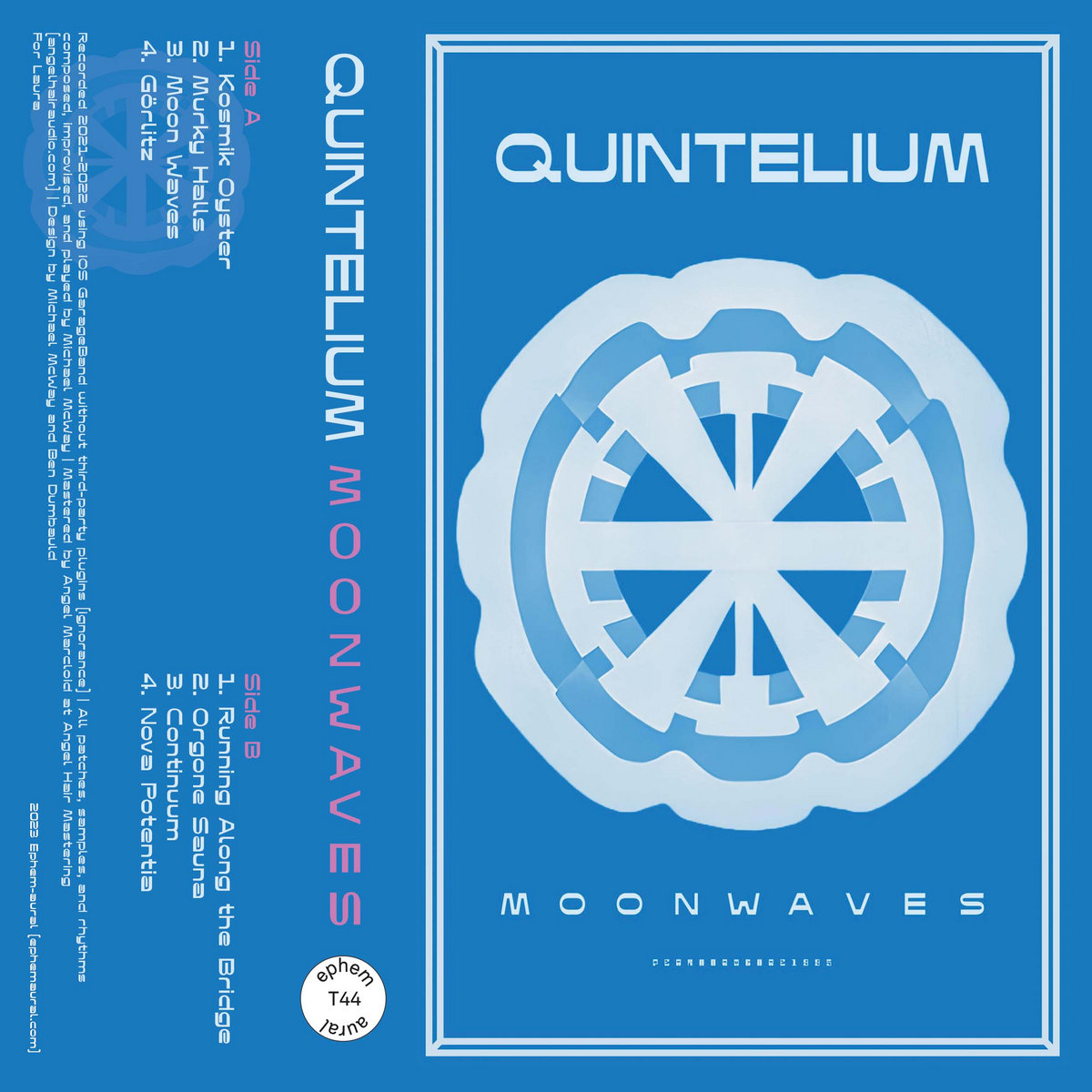
Quintelium – Moon Waves
It’s always interesting when an ambient musician gets restless. Unfurling widely from the drone-esque nature of Quintelium‘s debut, Moon Waves finds itself dashing through experimental electronic ideas that are nonetheless consistently groovy. It feels like attending a rave on some distant planet, as alien as it is immediate. It all but induces a trance throughout the likes of “Orgone Sauna” the ephemeral title track. If this sounds a bit heady, it’s undeniably sci-fi, but never loses sight of a sense of fun and adventure, as slick and mysterious as it is unusual. If you’ve ever longed to party somewhere else, this is a slice of patient fervor worth consuming.- Chase McMullen

Ragana – Desolation’s Flower
Ragana create torrential waves of volatile noise, beautiful and hypnotic yet also bruising. The Olympia metal duo of Coley and Maria – they do not share their last names – embrace the ferocity of the genre while approaching their music with careful heed of the emotional wreckage it explores, mindful not to wallow in the darkness without offering some slight bit of light to break up the ensuing midnight atmospheres. Their latest, Desolation’s Flower, is a colossus, a planetary body capable of producing its own gravity, with Coley’s unfiltered screams illuminating rage and not just amplitude. Her guitar lurches and devastates, black metal riffs slicing through the thickening air while Maria’s percussive missives attain a geological awareness.
Despite the ink black depths of these sounds, Ragan find room to express gratitude to all those who paved the road for them, all those who suffered under social strictures which denied them personal agency and growth. From the title track’s righteous indignation and contrasting tempos to the clanging internal mechanisms and emotional upheaval of “Winter’s Light Pt. 2”, they seek revelation and change in equal measure, tearing down the old to make way for something better. “DTA” finds them detailing the frustration and anger bubbling over in America’s streets, casting miles-long riffs alongside brutal drumming.
Desolation’s Flower is a call to arms, a shriek from the darkness, a warning to shift our collective perspectives before nothing is left but ashes and the ruins of outdated social foundations. – Joshua Pickard
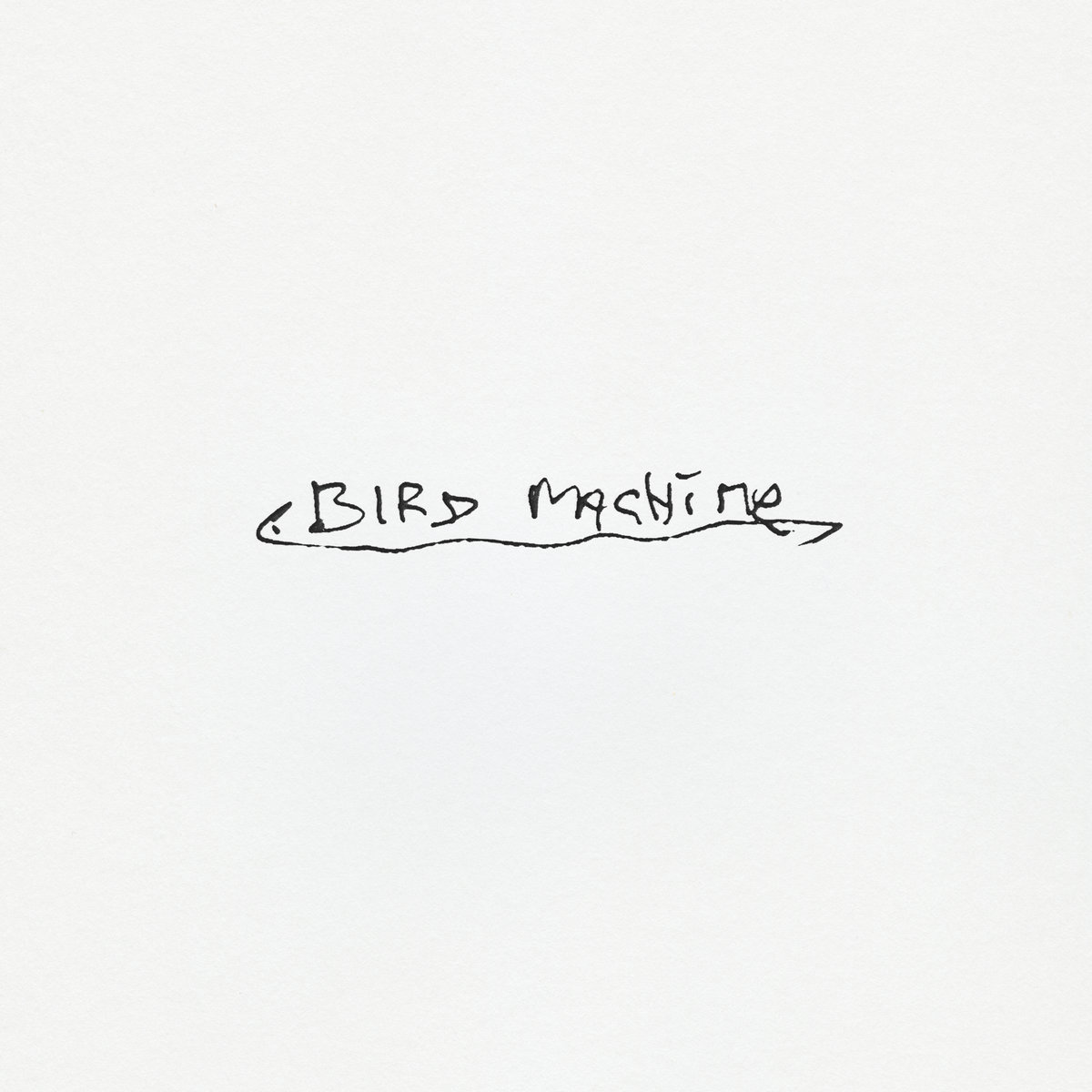
Sparklehorse – Bird Machine
Like so many otherworldly wordsmiths – David Berman and Vic Chesnutt come to mind – Mark Linkous had the curious ability to talk to ghosts, to conjure spectral realities, Southern gothic visions of everyday magic lost to all but a few very observant people. Linkous passed away in March of 2010, leaving behind a legacy of pastoral and broken rock alchemy indebted to humid summers, acts of anthropomorphism, and a belief that words can break the hardness of the world. We thought his voice lost, but thanks to his brother and sister-in-law, we’ve been given the opportunity to spend just a bit more time with him and his Sparklehorse project on Bird Machine, a collection of songs that reconnect us with his inimitable voice, a phantom of unconceivable emotional resonance and influence.
This album was already conceived and mostly laid out when Linkous died and feels like a direct extension of his earlier work. His voice can still reduce you to uncontrolled sobbing with just a few syllables, finding resolve and inspiration in the creative process. Songs like “Hello Lord” and “The Scull of Lucia” are platforms for him to wander about, spreading the gospel of supernatural realism. Veering between distorted rock and skewed pop, these songs reflect Mark’s own musical adorations, a blurred history of genres bent and tangled together without restriction. Bird Machine offers illumination, a glimpse into what could have been, a life continued and creativity acted upon. It’s a testament to unresolved genius – and one that we can experience again, even if only through his music. – Joshua Pickard

Spirit of the Beehive – i’m so lucky EP
An 11-minute blast of Spirit of the Beehive’s unique cornucopia of sounds is unlikely to have welcomed new fans, but those initiated into the New Jersey weirdos’ style will have more than appreciated the top-up of fresh material while we wait for their next full-length. i’m so lucky continues the creativity from last year’s ENTERTAINMENT, DEATH, with Spirit of the Beehive continuing to deploy synths, guitars, samples and drum machines in unexpected ways to create sound collages that layer psychedelic euphoria atop yawning depression.
Despite the brevity of the release, all of Spirit of the Beehive’s vocalists segue in and out of these pieces and leave their mark. It makes the band a multi-faced hydra – one moment they’re dreamy, the next raging, the next disaffected. With this multiplicity of approach, i’m so lucky maintains that fun-house experience of their previous work, warping expectations into an addictive melange of colour and texture that fucking rocks. – Rob Hakimian
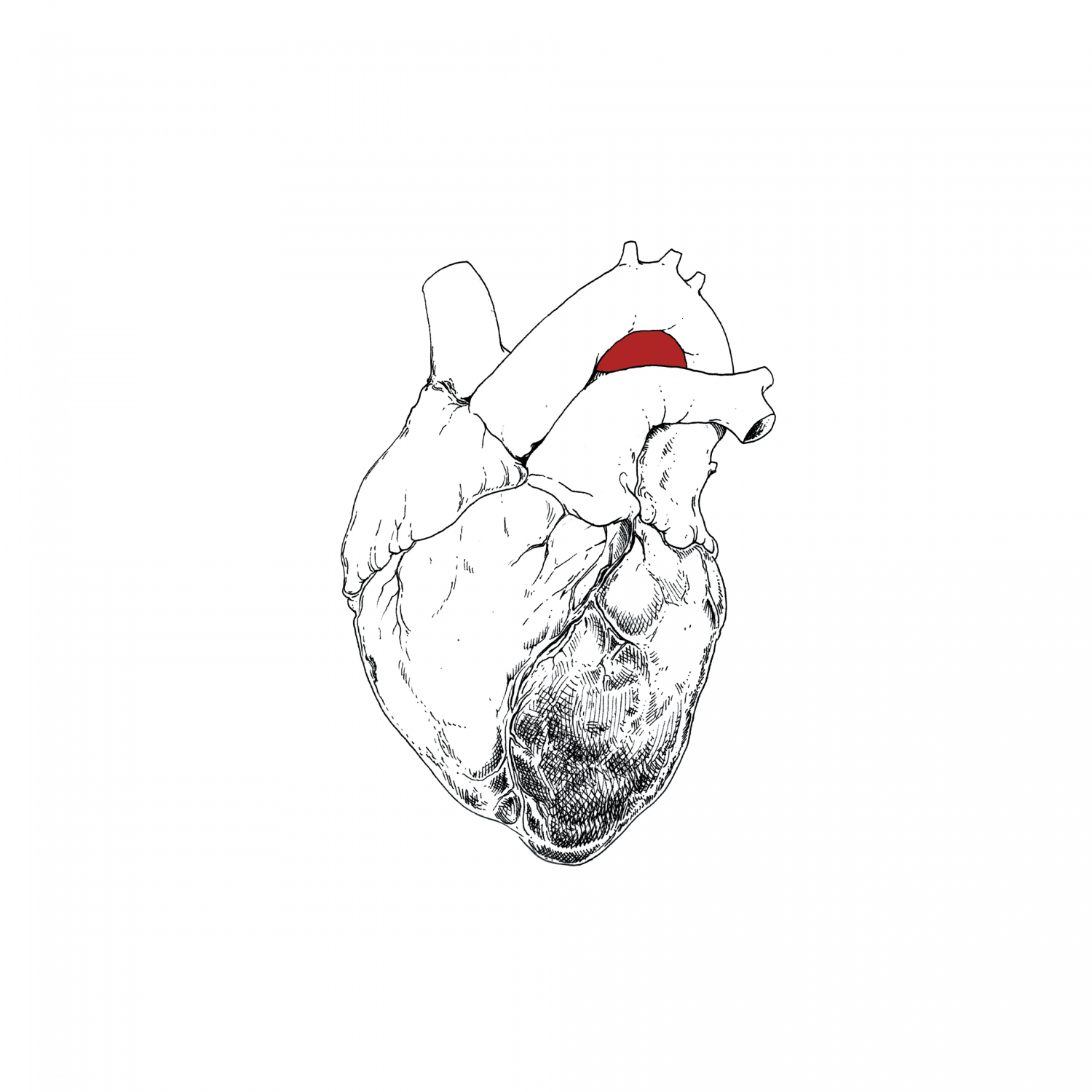
Swans – The Beggar
Archaic and massive, The Beggar was probably too much to tackle for some: Michael Gira’s return to the heavier side of his constantly transformative, always controversial group Swans saw him grapple with his own mortality and value of the soul. In the process, he faces his own biography to find kaleidoscopic visions of the multitudes that made him. Confronting his own past as a miner (“The Memorious”), satirising his deathbed (“Michael is Done”) and finding peace in the vanishing of light (“Unforming”). At times angry, at others filled with grace, his compositions and merciless organs move forward, uniting elements of his life – and his art – that seemed separated and divided. Gira is happy, for once, presenting himself as a pink poodle.
It is one of Swans’ best albums, easily, somewhere between the greatest achievements of the past and a future that seems to shine all the brighter. If its massive size seems frightening, start here: “No More of This” is a brilliant, shining Folk ballad that climaxes in church-like choirs, as Gira recounts poetry on the end of all. And if this seems not daunting enough: “The Beggar Lover (Three)” is a 44-minute collage of grooves, tape hissing, ominous children voices and exploding drums that resides among the best the group has done in the experimental field. Regardless, Swans have delivered a sold out tour that many have said could be their best yet and an album that feels like the climax of their longwinded career. Gira has said that his music is the closest he got to God – maybe that’s where the light within The Beggar comes out. – John Wohlmacher
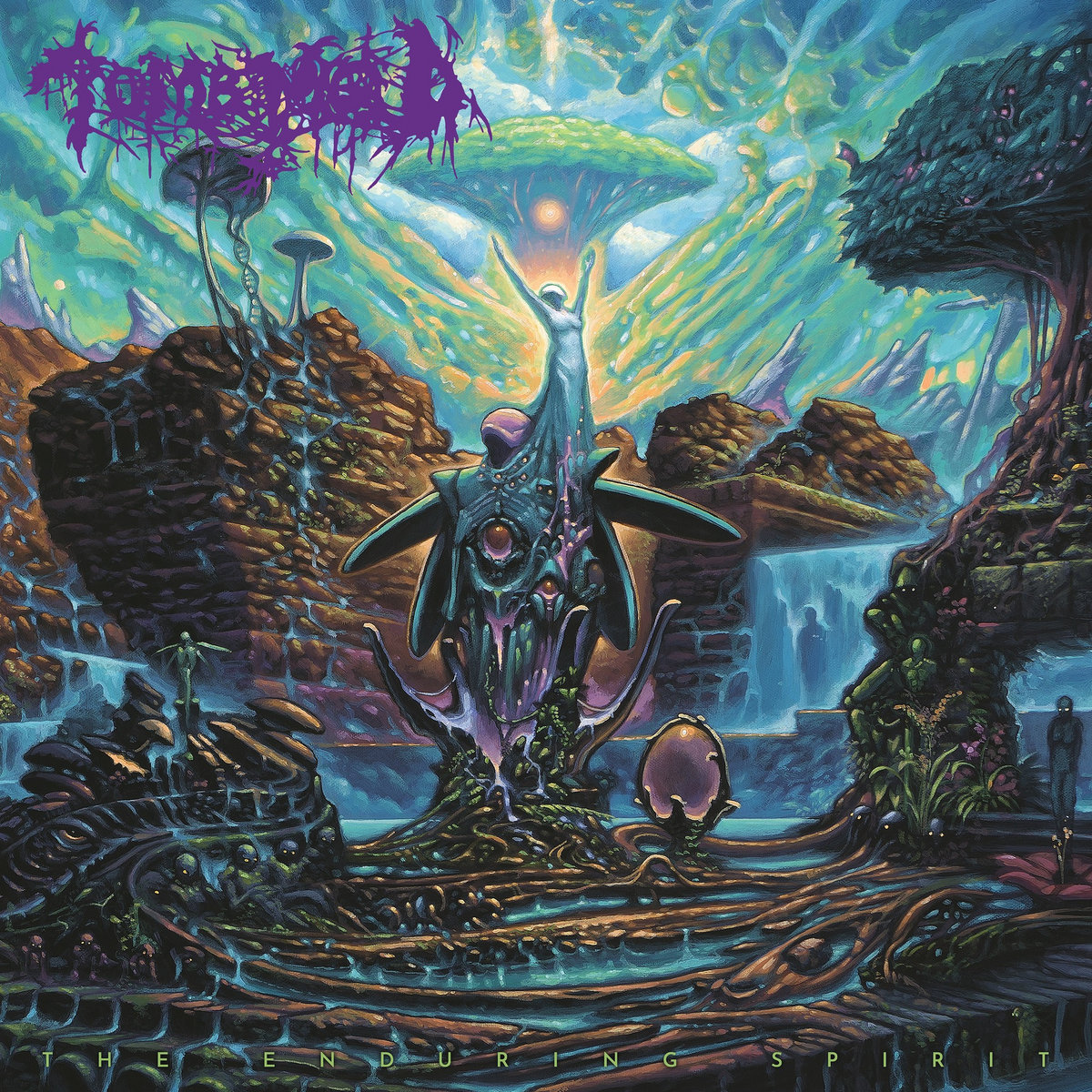
Tomb Mold – The Enduring Spirit
[20 Buck Spin]
It’s been four years since we’ve had a new album from Ontario metalmakers Tomb Mold – not counting 2022’s Aperture of Body EP – and somehow, it feels right to have them come back in 2023 and reduce the world to rubble. Maybe it all needs to come crashing down before something better can be built in its place. All I can say is that it’s great to have them around if the world really is coming to an end. Their latest, The Enduring Spirit, is a prog-y metal behemoth, a collection of death metal anthems set to light the atmosphere on fire and burn away all the impurities it touches. But there is renewal as well, a sense of purpose in this devastation and a desire to reorient the world according to new perspectives.
“Will of Whispers” is a brutal jazz-adjacent detour into genre-fluid recalibrations, while still leaving room for the band to leave nothing but cinders when the music finally ends. “The Perfect Memory (Phantasm of Aura)” catapults you into a realm of jackhammering drums, lightning quick guitar riffs, and bellowing vocal distortions, a world of noise and unfiltered amplitude that seeks to support its byzantine melodicism. These songs exist as primal entities, guttural narratives that seek to raze and revive within the same breath. The Enduring Spirit calls out to those in pain, confused and disoriented by a world doused in callous inequities, offering its own idea of hope and what the world might look like after everything has fallen into memory. – Joshua Pickard
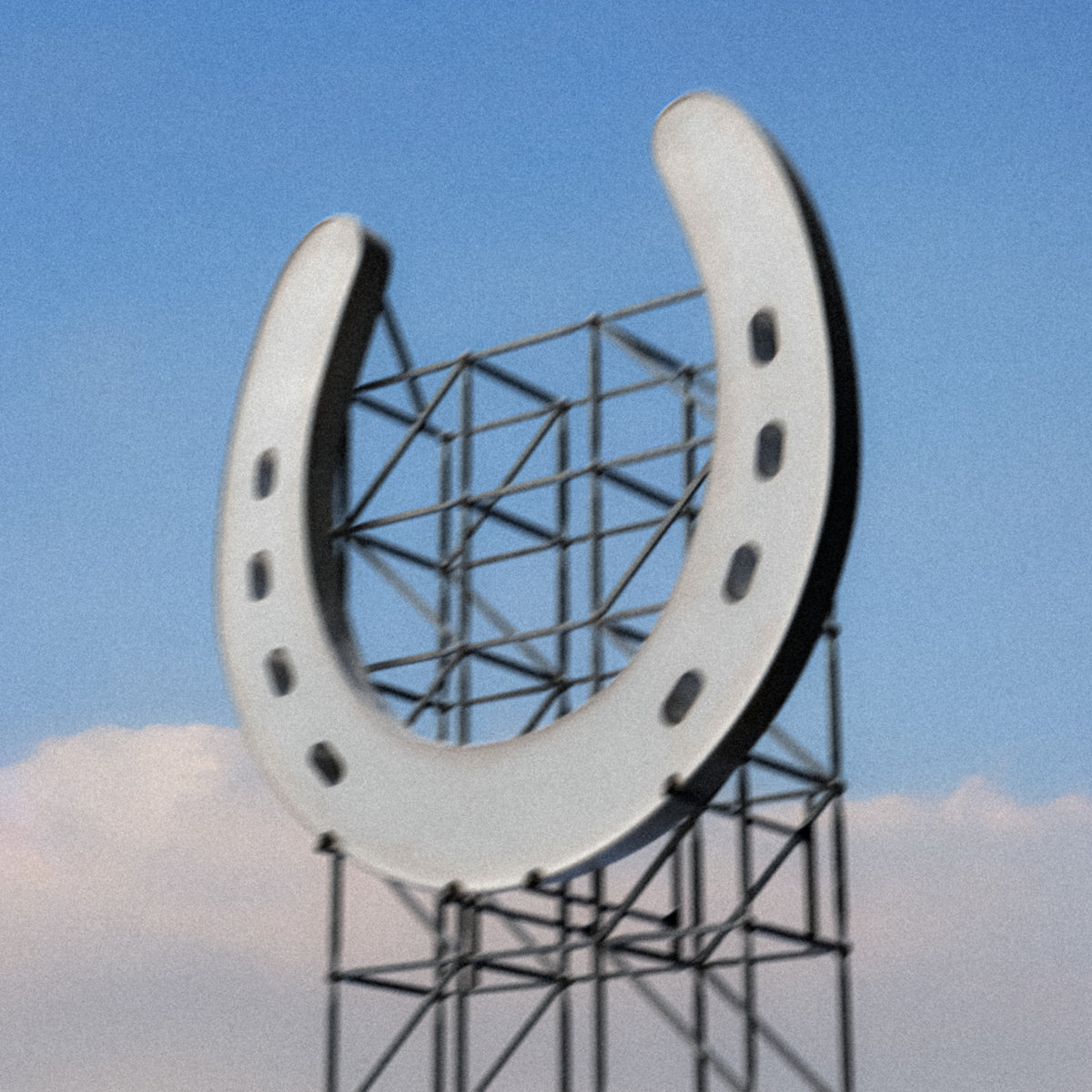
underscores – Wallsocket
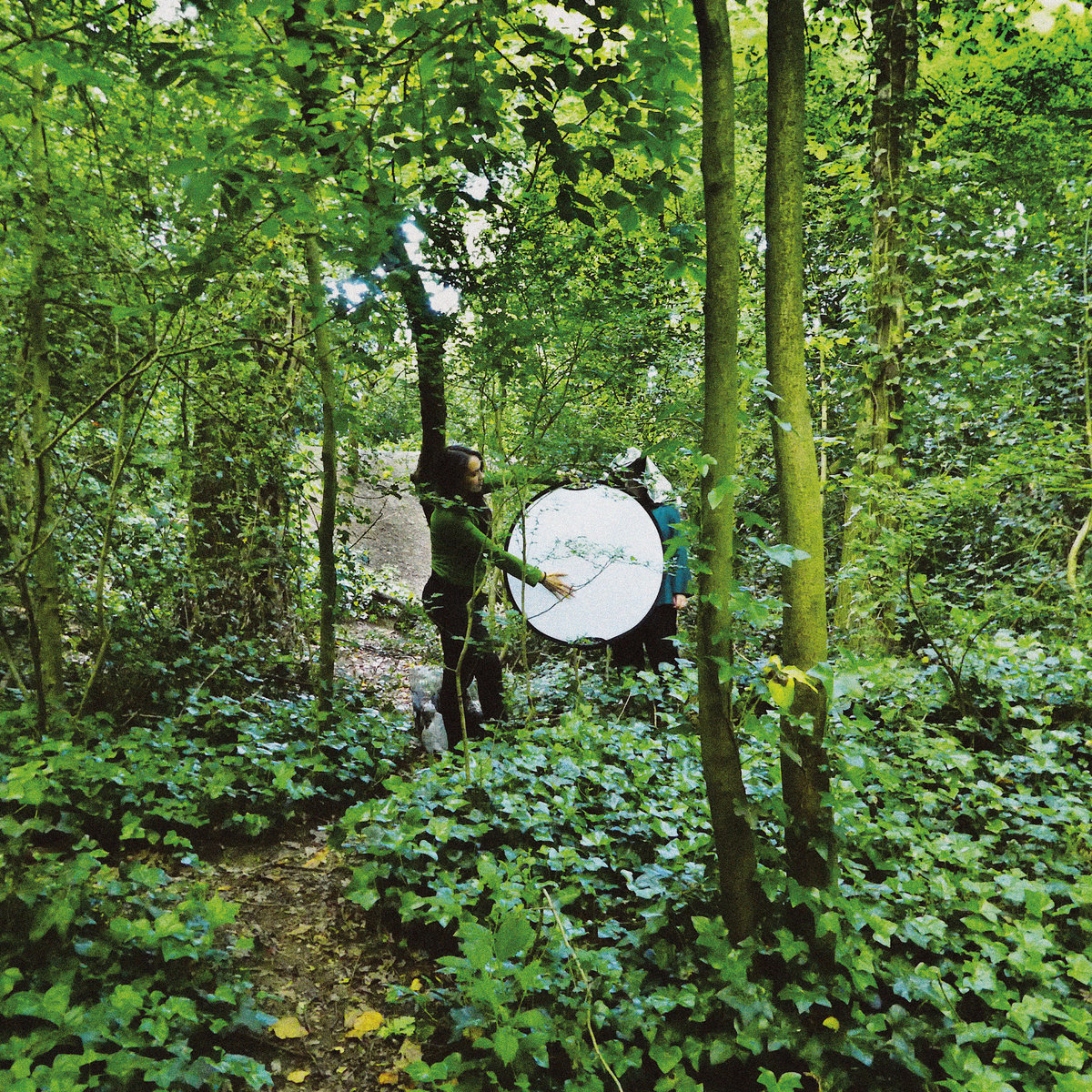
Valentina Magaletti & Laila Sakini – Cupo
There’s a gentle restlessness to Cupo, a series of shifting perspectives offered as it ambles from one subtle rhythmic variation to the next. Arranged and held aloft by Londoners Valentina Magaletti and Laila Sakini, the album is a platform for communal experimentation. Using a wide array of instruments (trumpet, flute, harmonica, recorder, bass, strings, and piano to name a few), both musicians tumble across genres like rolling hills, only slowing briefly before picking up speed and carrying on to the next peak and furrow. Despite Cupo‘s improvisational nature, there is direction here, a sense of progression and intent – and a gradual accumulation of sound as Magaletti and Sakini build a lattice of noise that speaks to their adoration of uncommon musical structures and the curious reactions they trigger when exposed to external stimuli.
Across 10 connected movements, Magaletti and Sakini develop a new language, one that speaks of complicated histories and supernatural atmospheres and ambient tonalities pushed beyond their limits. Measured and alchemical, the music clatters, collapses, and is absorbed osmotically by anyone within earshot. Voices call out from ephemeral places, percussive thumps and rattles bound alongside fractured rhythms as we’re drawn deeper into its cavernous gravity. The music rolls over you, waves of unpredictable resonance submerging you in an ocean of experimental awe. We’re never kept at a distance, however; the music is welcoming, spirited even, at times, speaking to the organic and synthetic mechanisms driving the world forward. To be clear, the darkness never fully recedes, offering occasional reminders of its presence, and asking only that we remember its place in our terrestrial perspectives. – Joshua Pickard
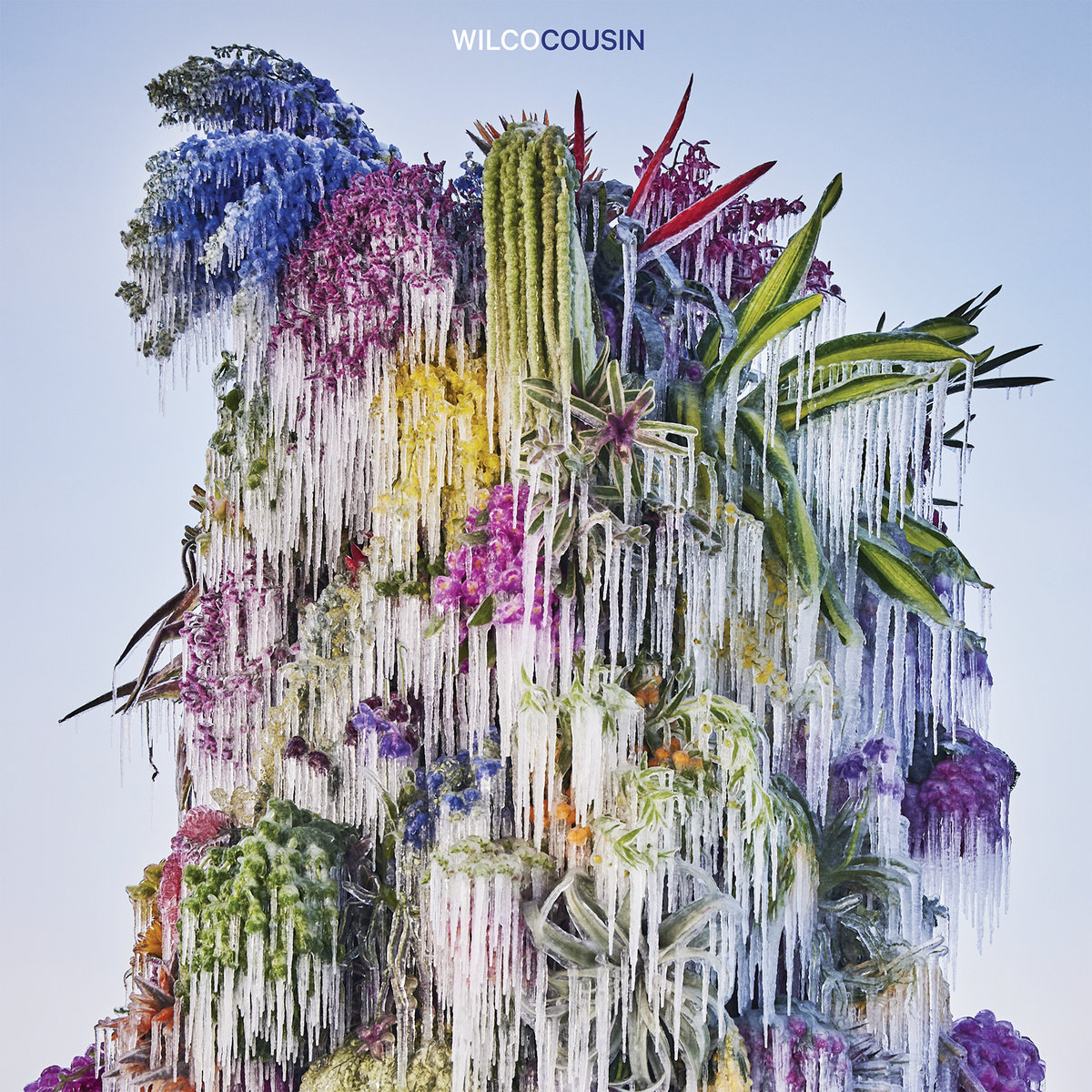
Wilco – Cousin
Jeff Tweedy’s band has been so consistently solid over the years, at some point it felt as if people started taking them for granted. After the garish disappointment of the overtly conservative and prosaic Cruel Country, Wilco‘s psychedelic and rich Cousin almost seems like an attempt to silence the critics who had abandoned them. It returns to the Beatles influence of Summerteeth and the sonic experimentation of Yankee Hotel Foxtrot for a lush, vibrant palette. There’s also genuine hits here: “Infinite Surprise”, the luxurious opener, is a strong contender for Wilco-S-tier track. “Levee”, with its Rubber Soul melody hasn’t left my mind, and I caught myself singing it absentmindedly. And speaking of earworms: “Evicted” is arguably the group’s best single since “I Might”.
With their shared love for the iconography of America’s classic rock canon, I always saw Wilco a distant parallel to fellow Chicagoans Smashing Pumpkins. But where Billy Corgan has vocally struggled with connecting to the zeitgeist and finding appraisal of his later works, Jeff Tweedy almost effortlessly seems content to compose music that remains timeless, a flow of avant-garde tinged rock that aligns Wilco with the Beatles, or Can, or Sonic Youth, as one of the great experimental groups. Cousin might have passed some people by, simply because it’s yet another diamond in a priceless collection. But it shines bright, with a distinct personality and tons of charisma. – John Wohlmacher

Zulu – A New Tomorrow
Sound can foment revolution of all kinds, documenting changes in musical trends, social upheaval, and political realignment, using past successes and failures to shape the world going forward. And that’s what Los Angeles multi-hyphenate outfit Zulu have done, incorporating hardcore, punk, classic soul, and post-rock into a churning miasma of apoplectic ruminations. Documenting generational trauma, inequity, and the frustrations of daily life lived through unequal burdens, A New Tomorrow is comprised of a series of scorched earth screeds and genre-defying evocations, thoughts and furies primed to illuminate and excavate the suppression of Black culture in the United States.
There is no timidity here, only voices gathered to form a wall of storming catharsis, raised in contempt of unchecked inequality and inequity. Anaiah Lei’s voice is a feral thing, gnashing syllables and consuming excess verbosity. The guitars move like tectonic plates as drums join in and add their geological imprint. But the band approaches this amplitude with a bit of sleight of hand, as songs like “Shine Eternally” and “We’re More Than This” highlight their musical malleability. Despite its aggressive nature, the music here isn’t bound by pain – there’s a sense of uplift, of community, driving the band to reject social expectations through the unbridled fire and pride in their hearts. – Joshua Pickard

